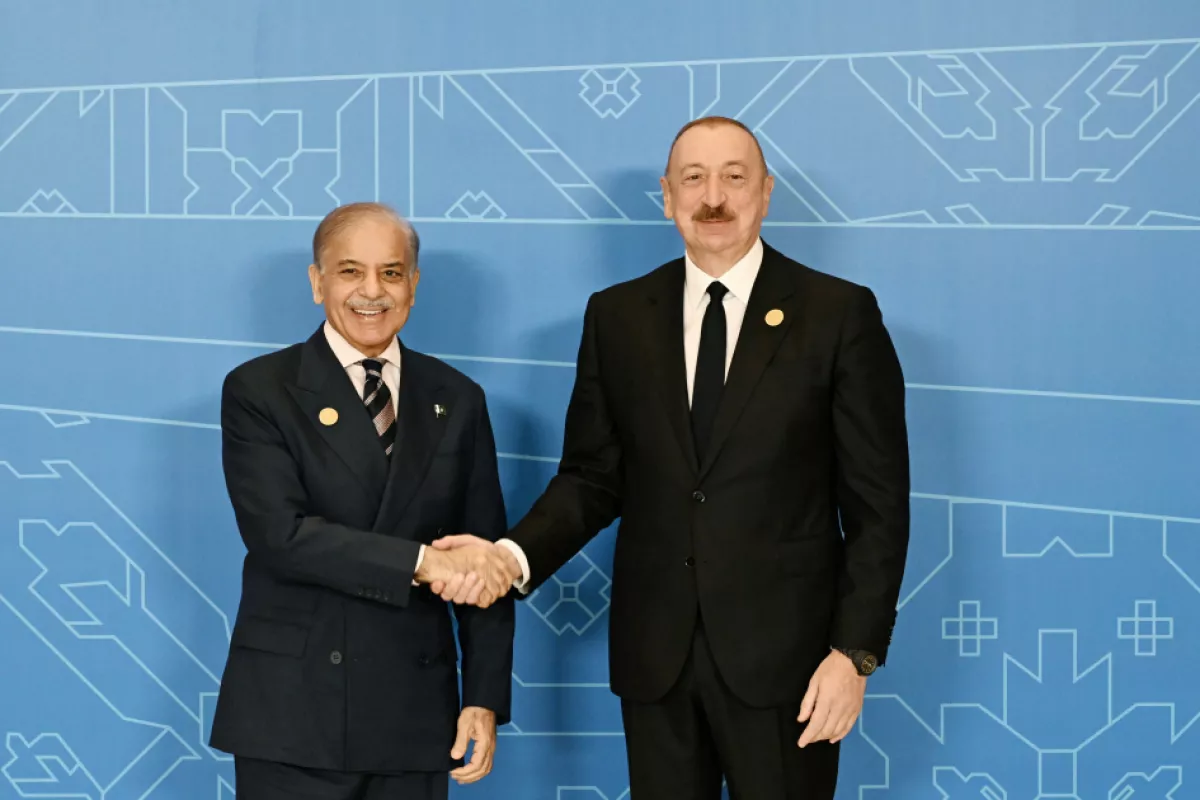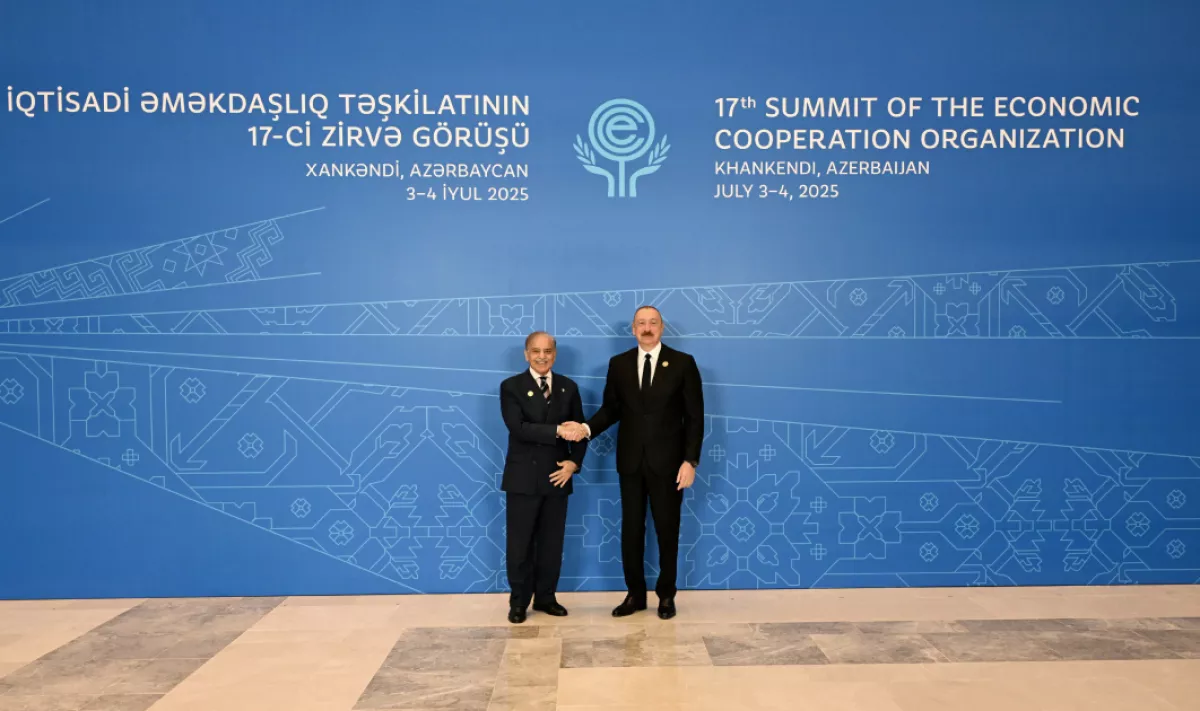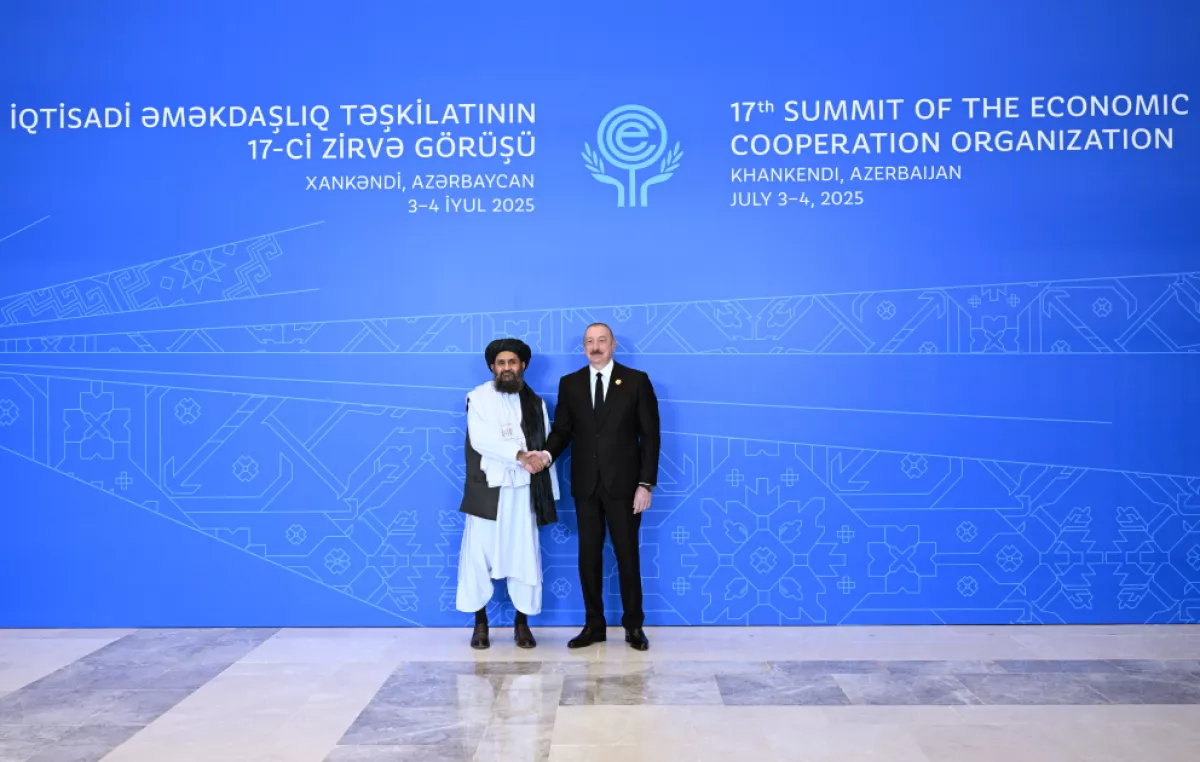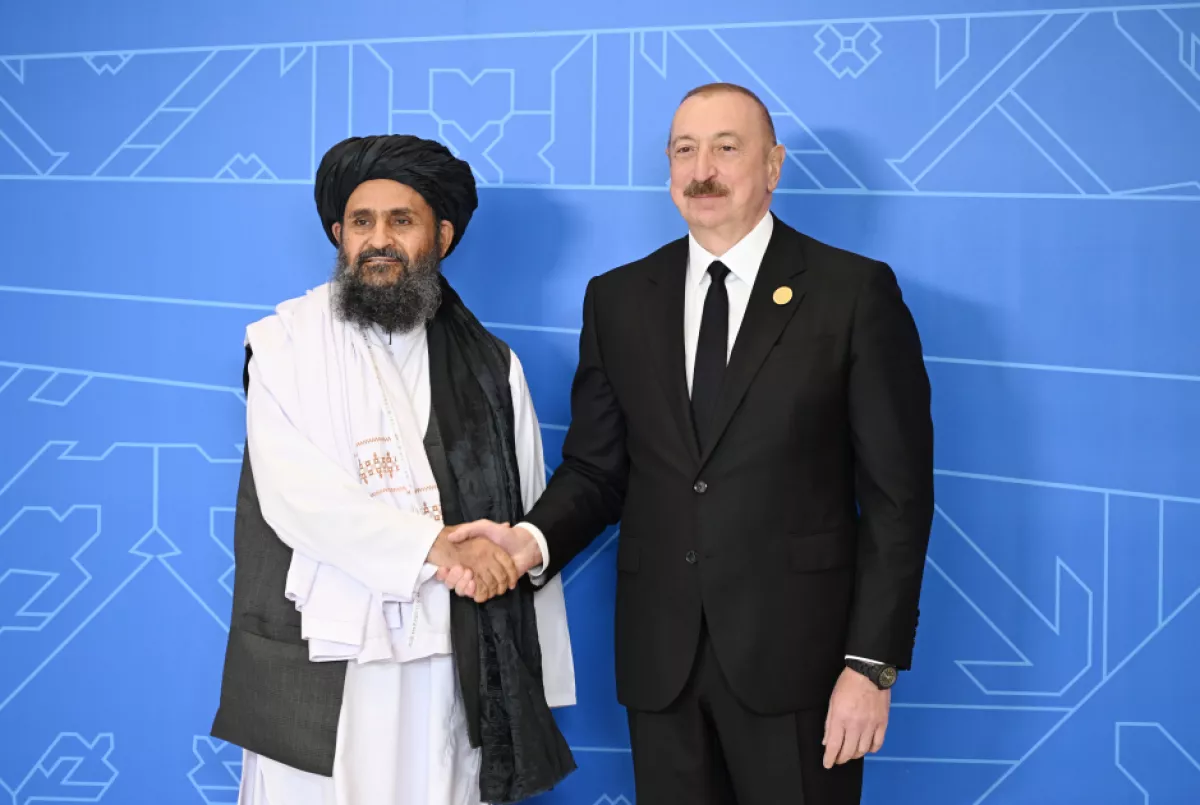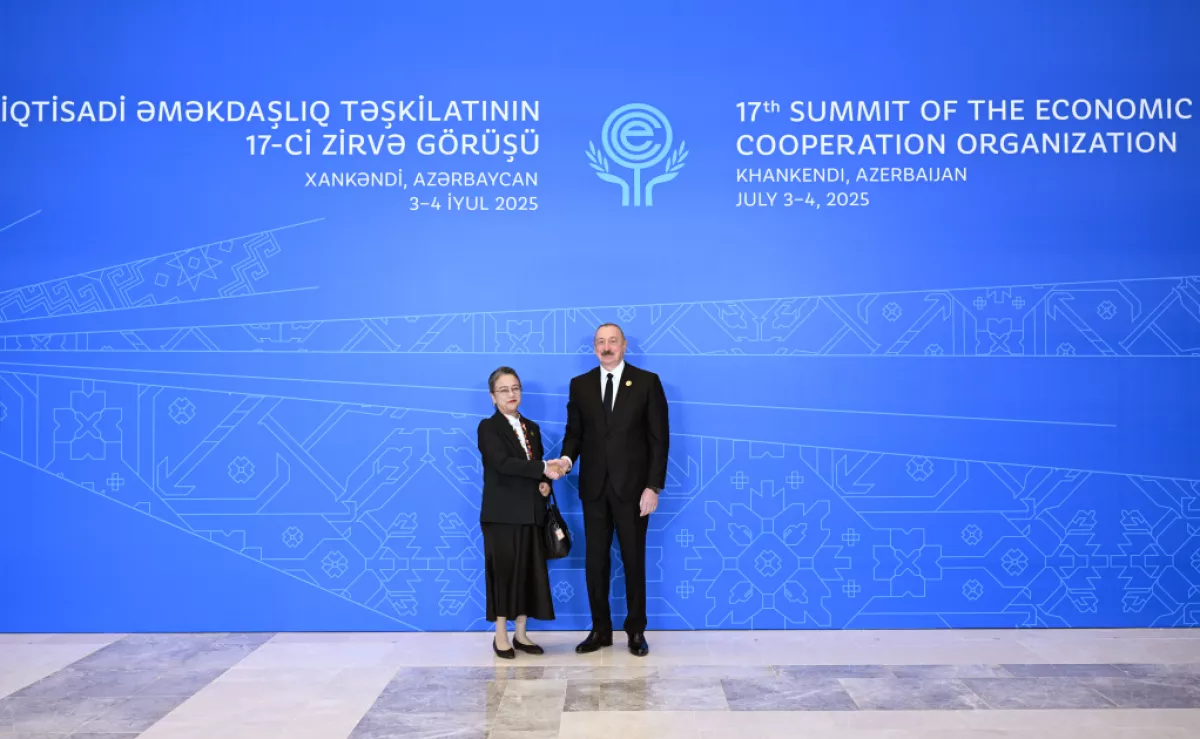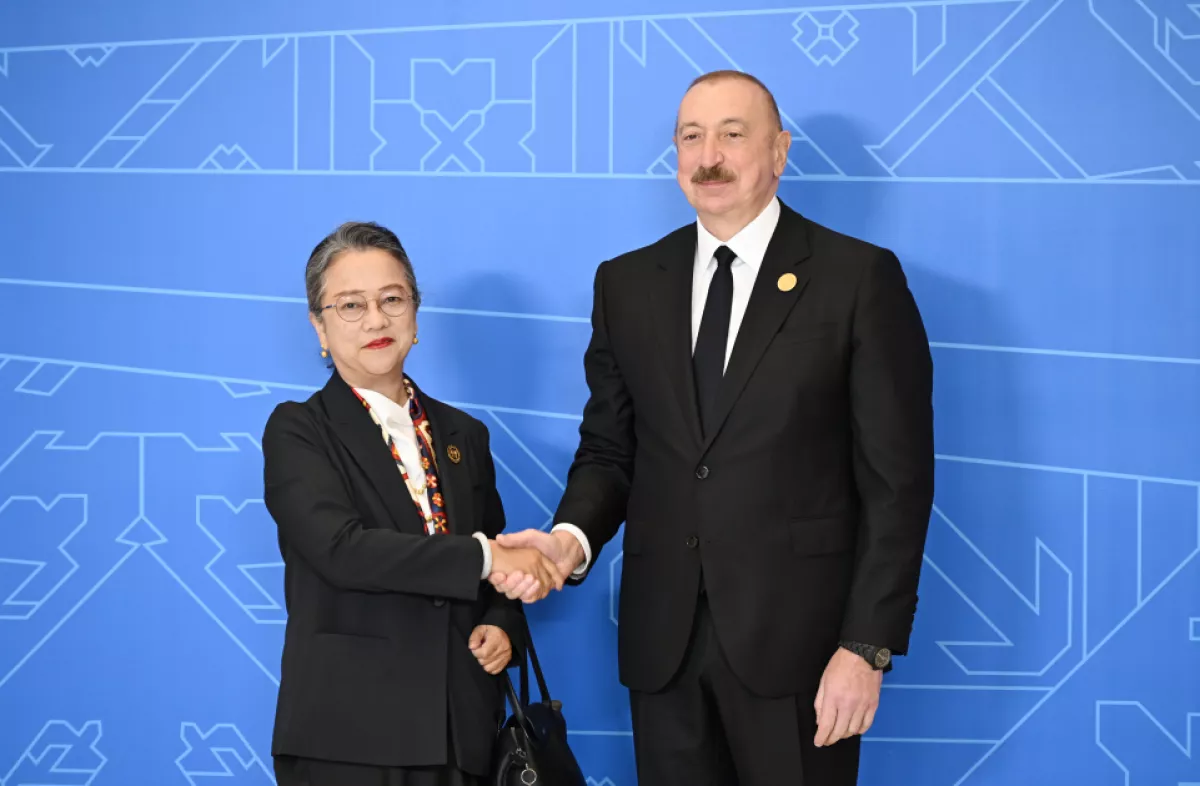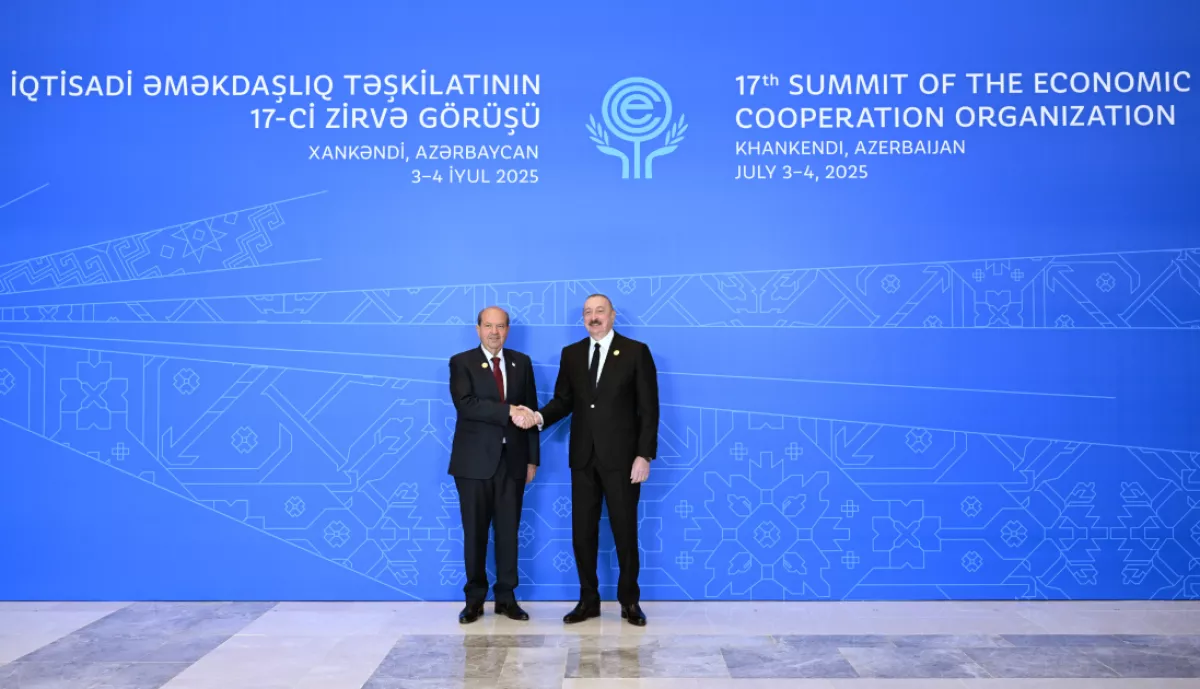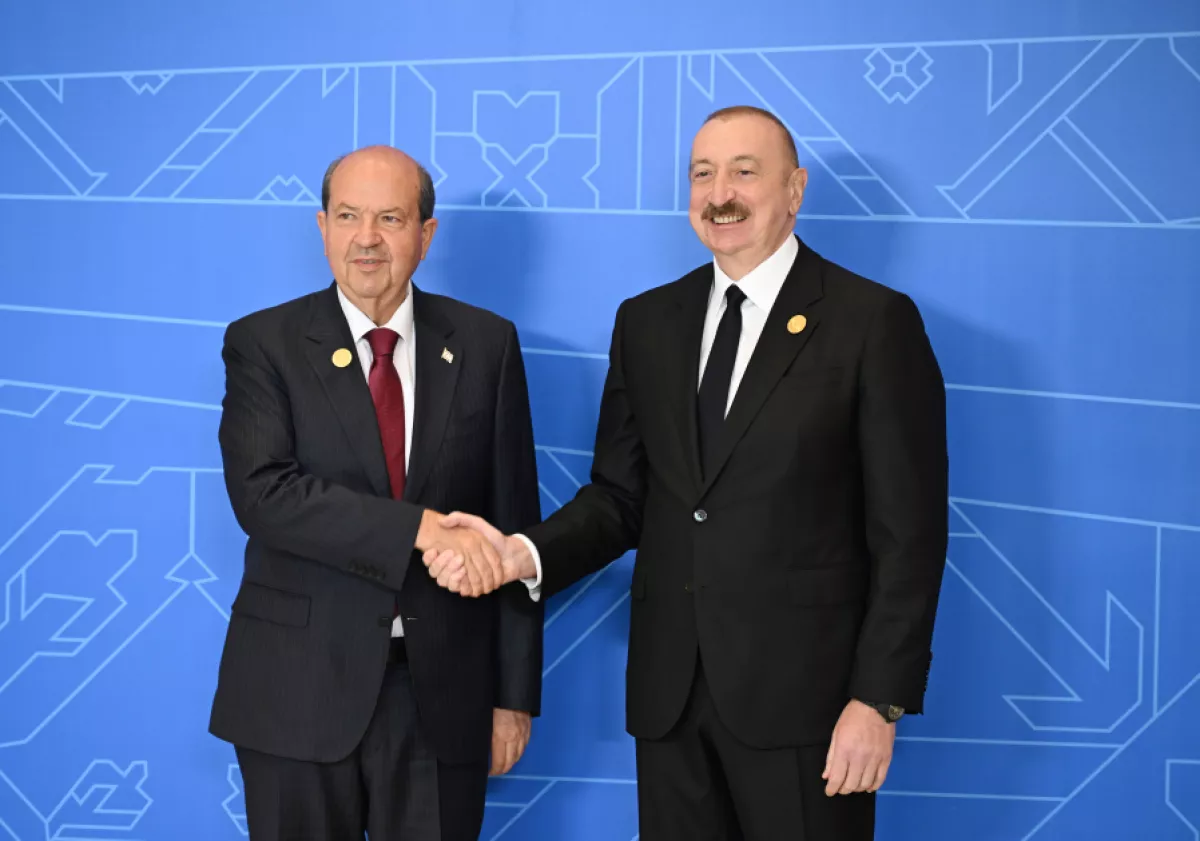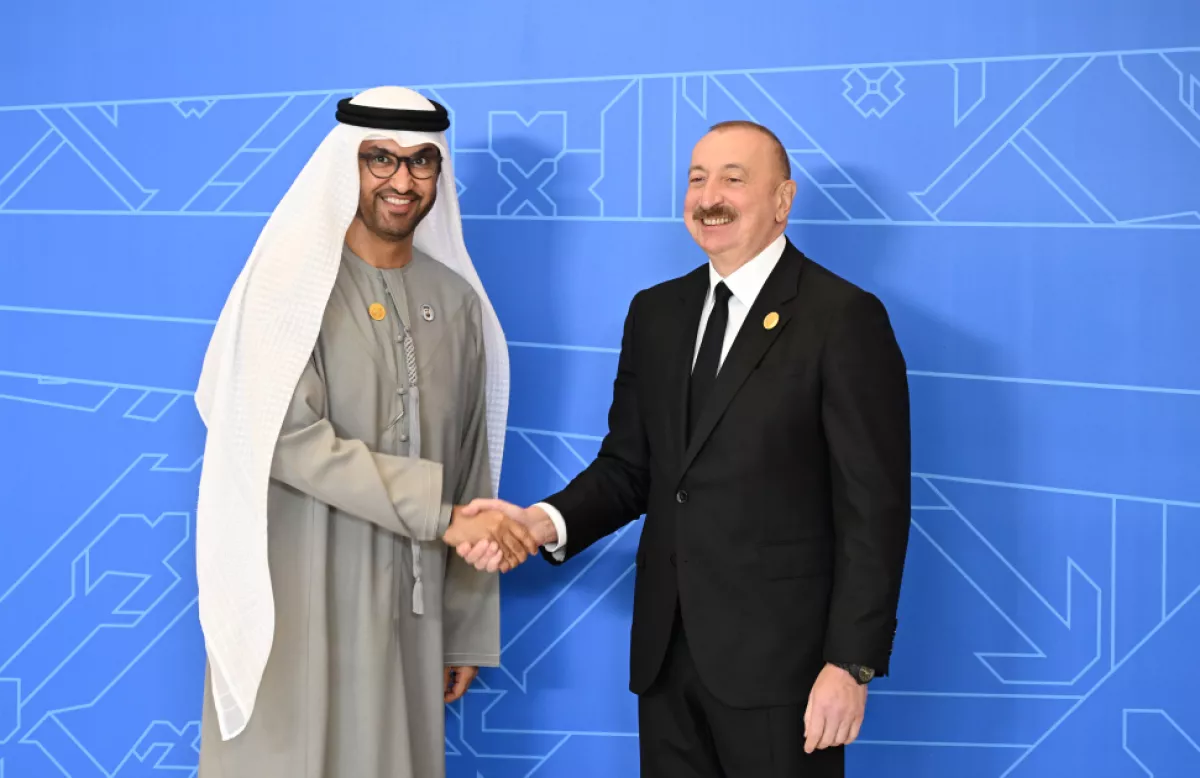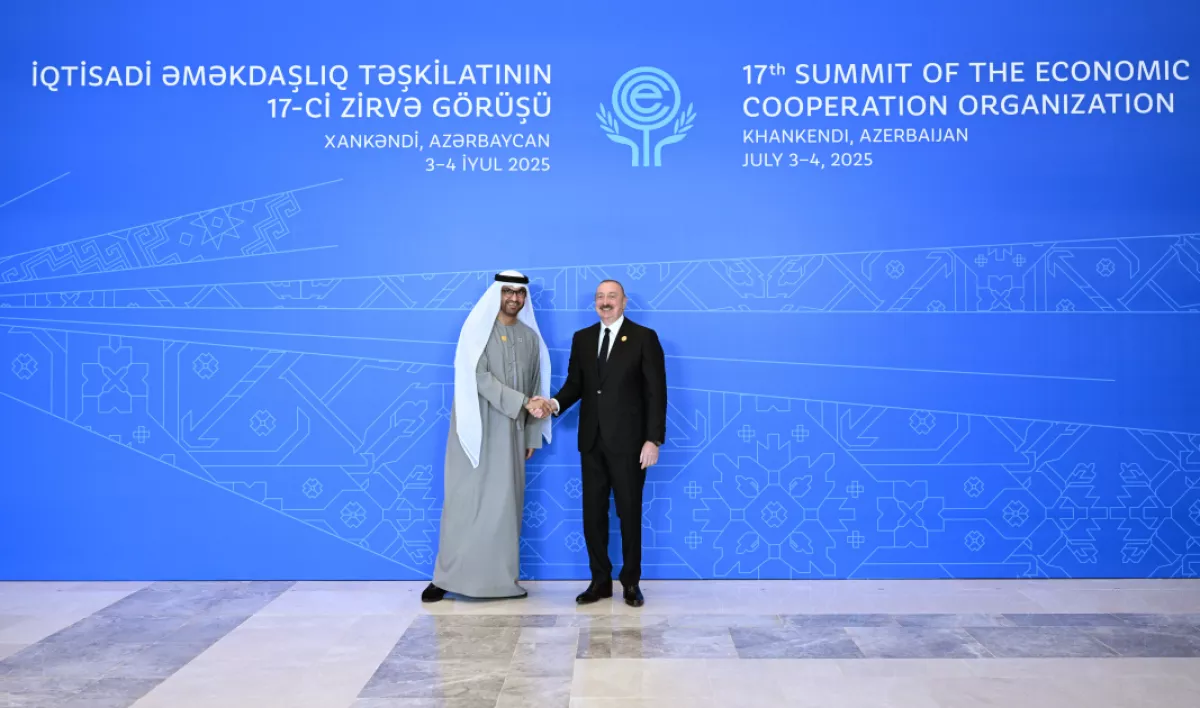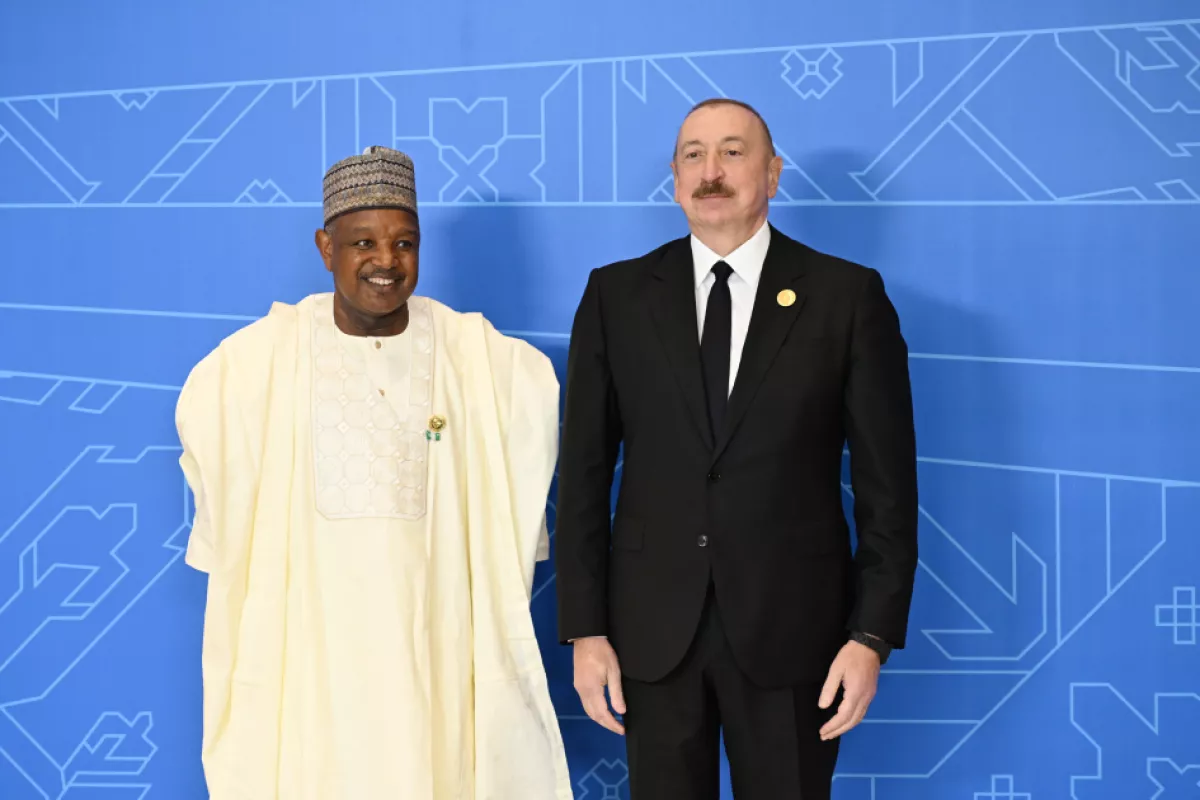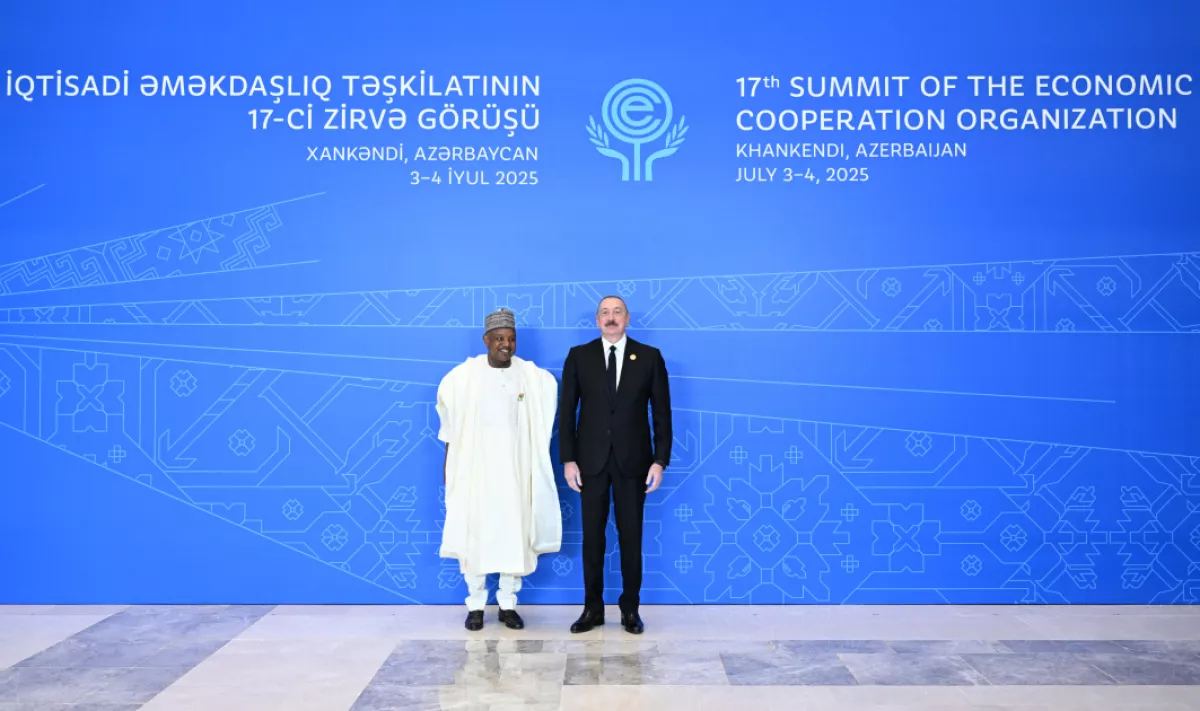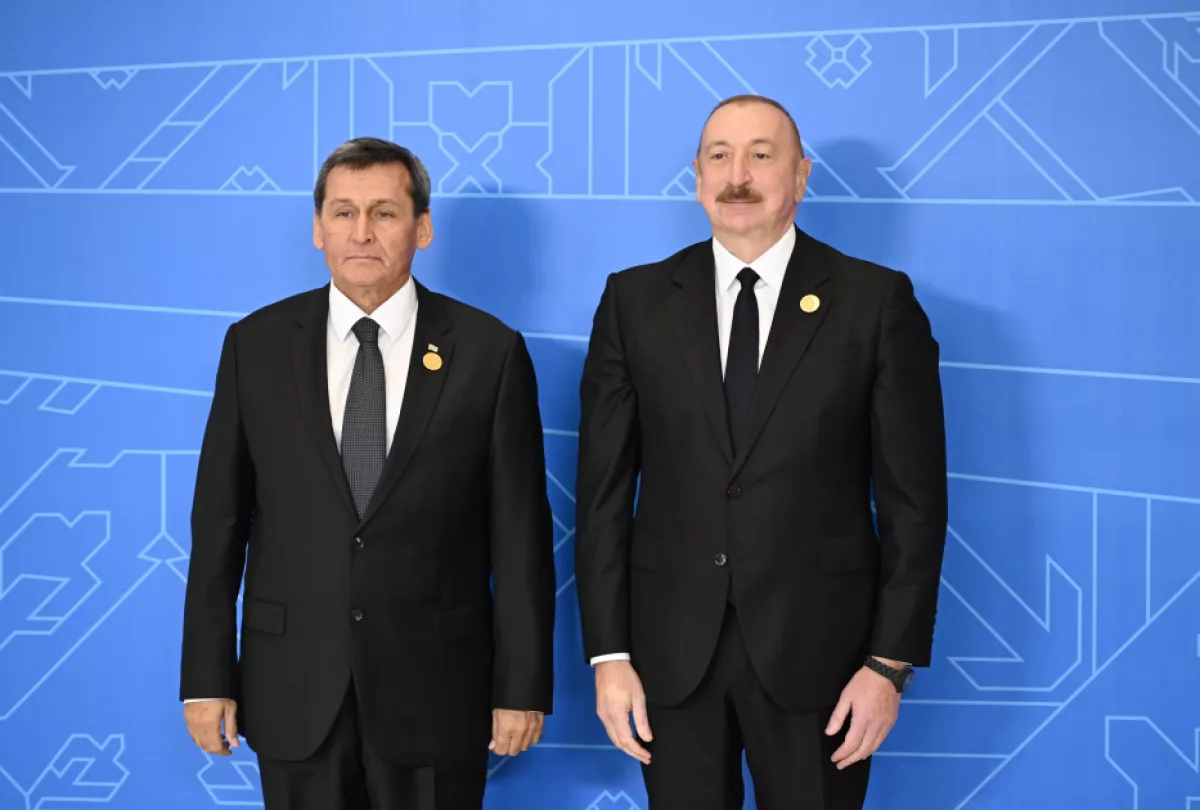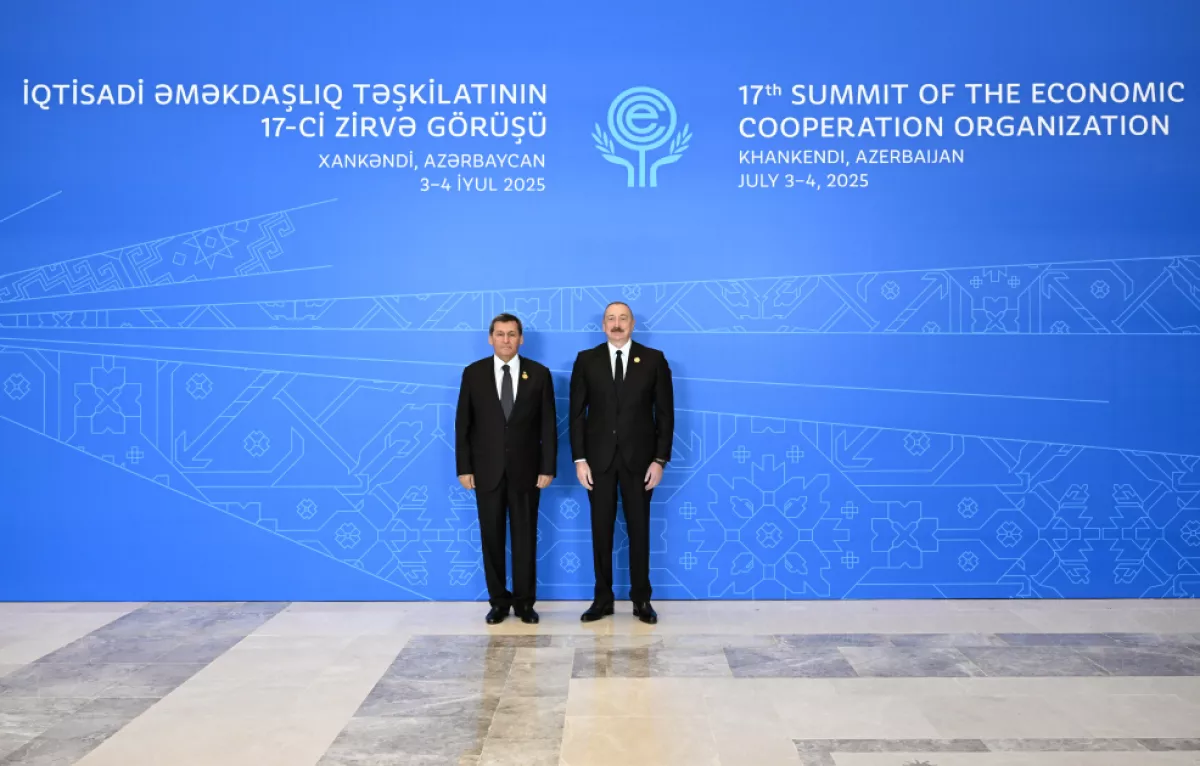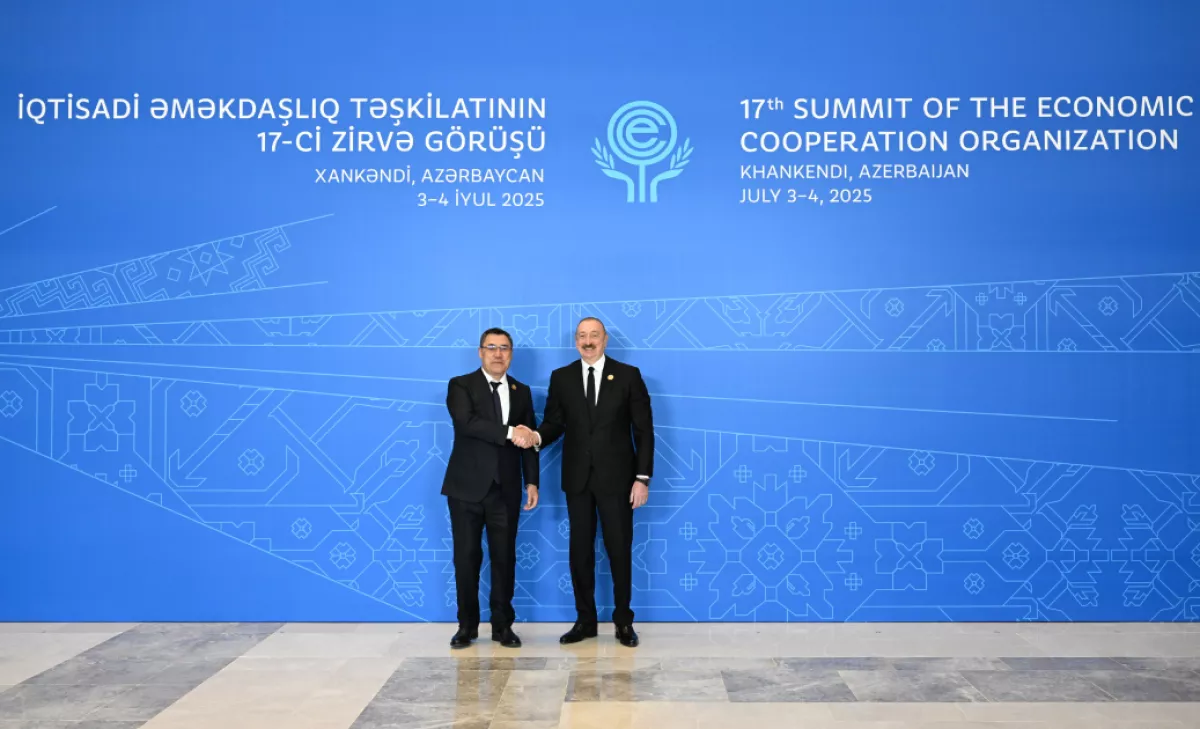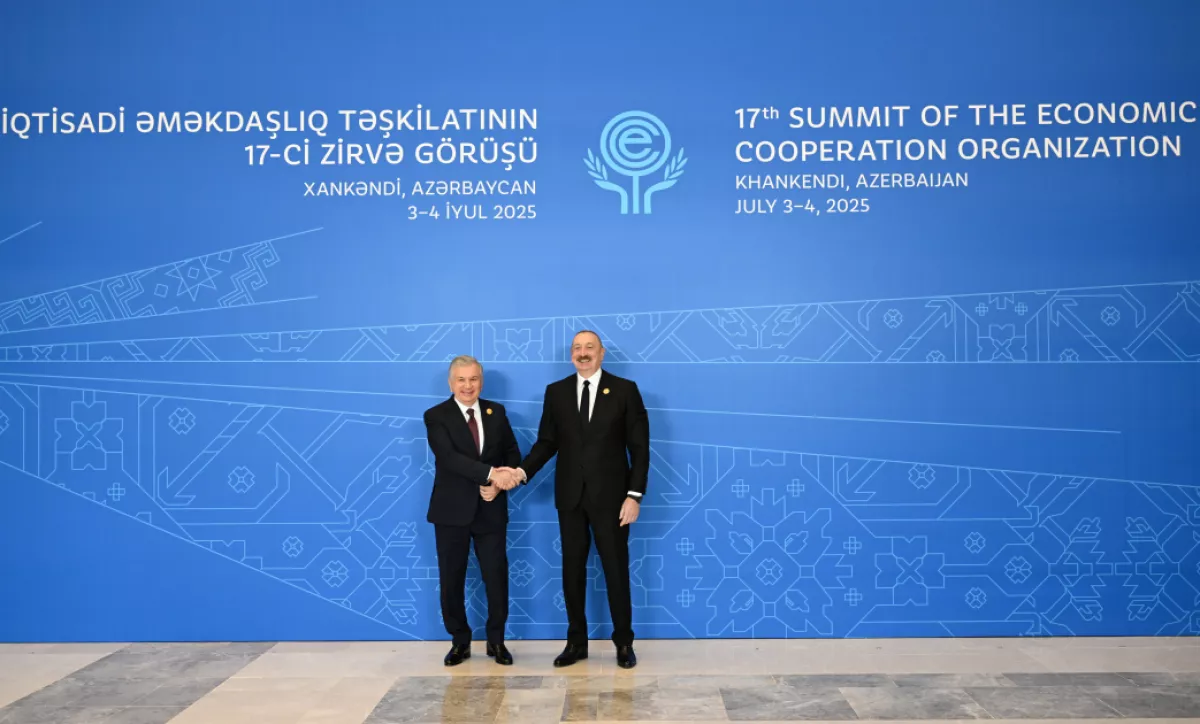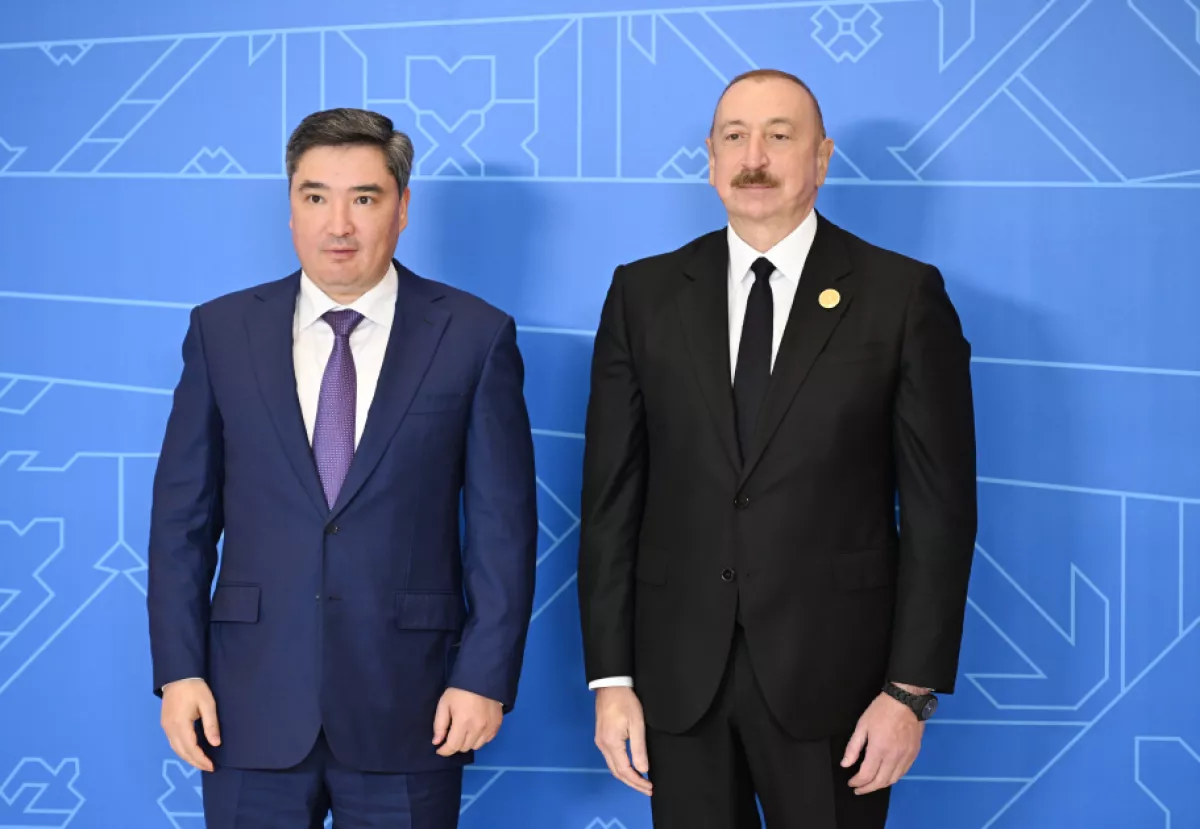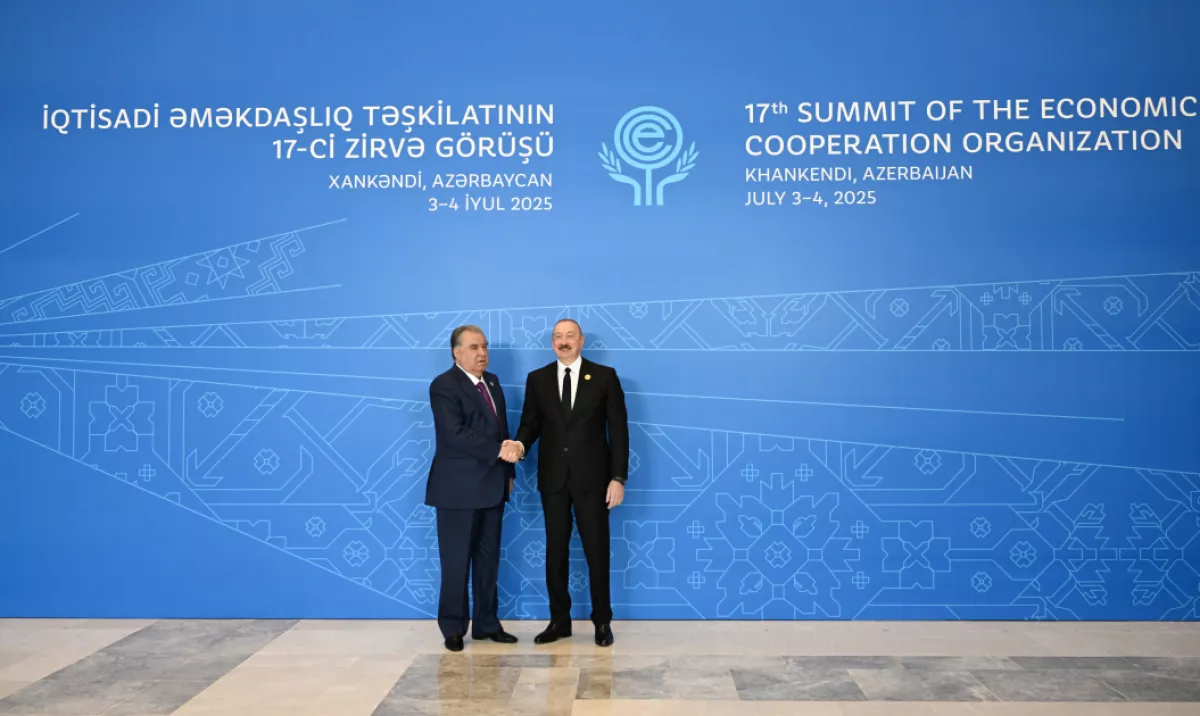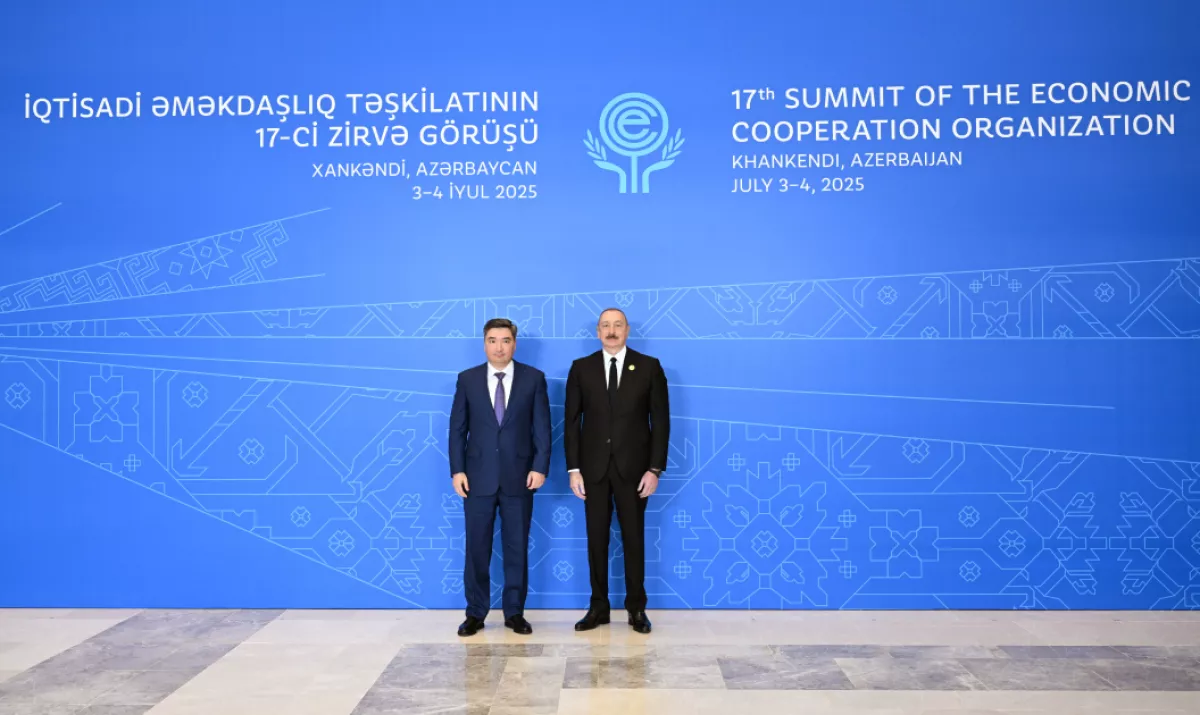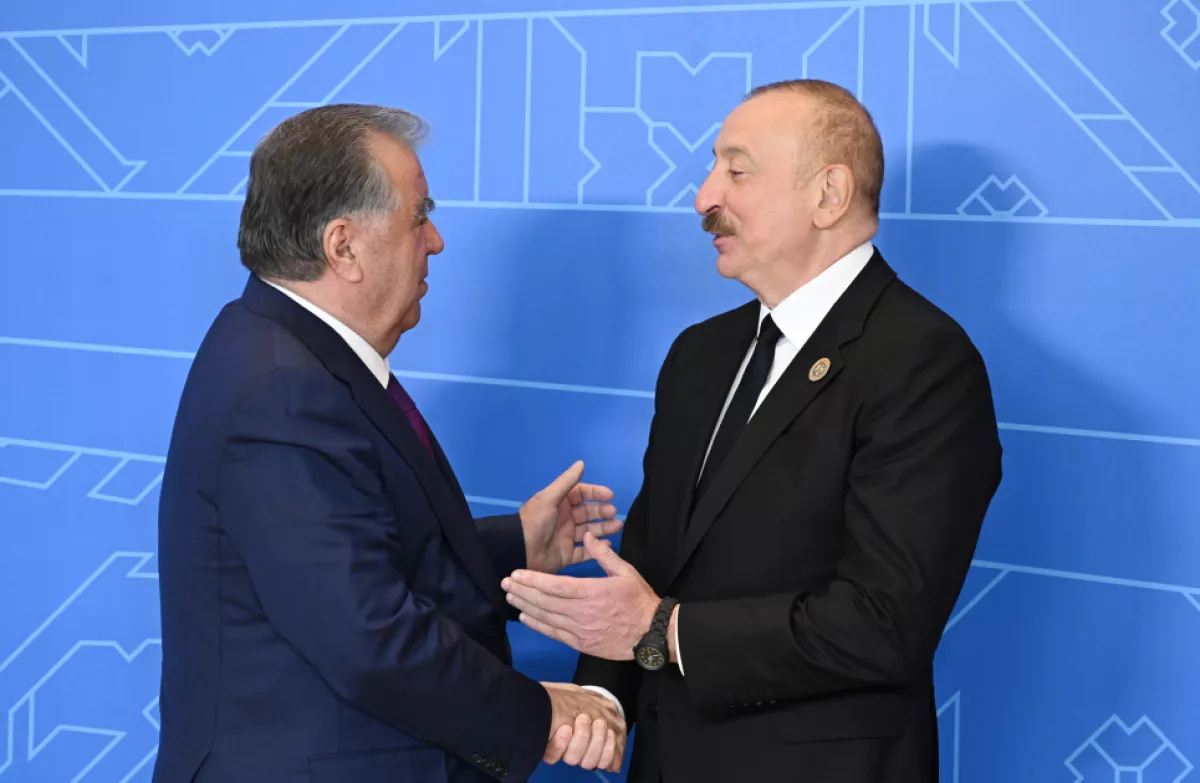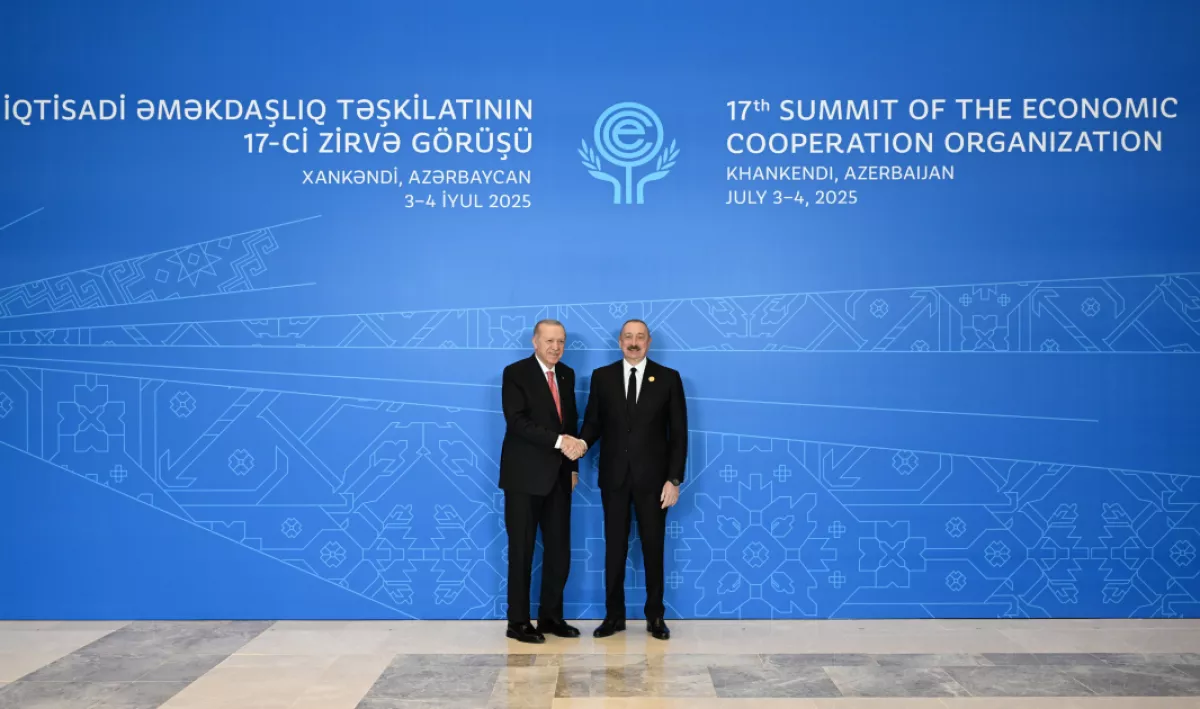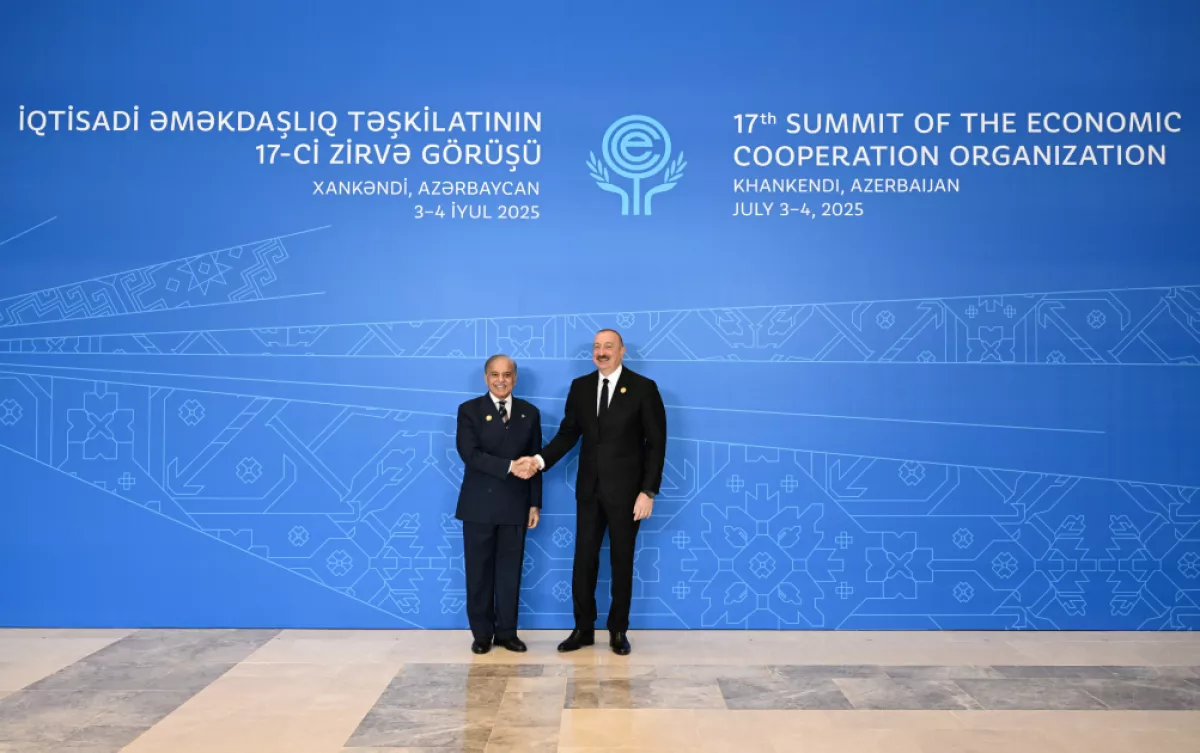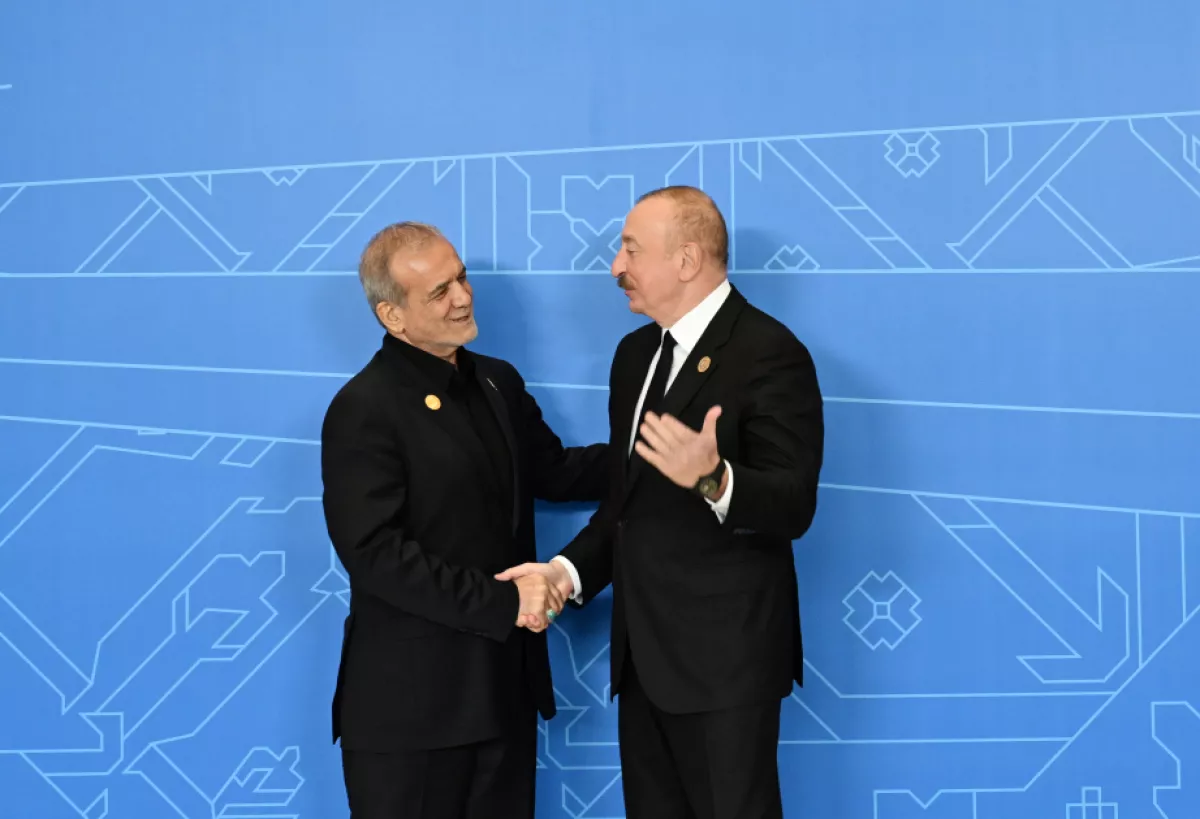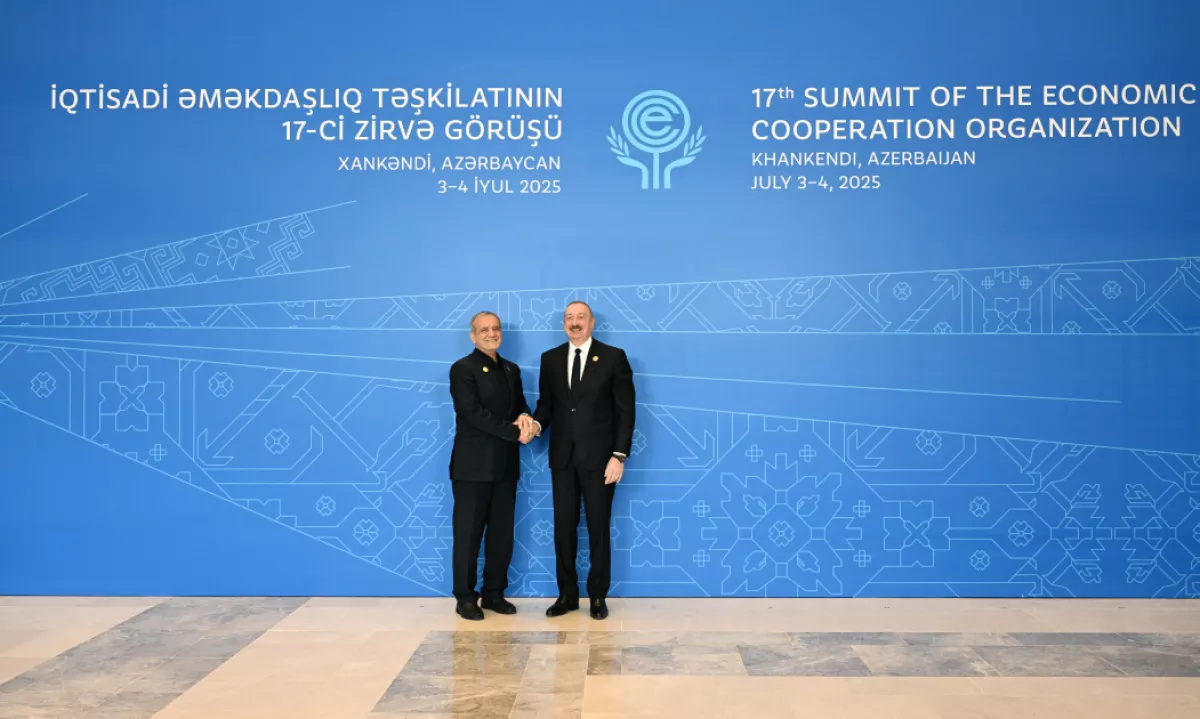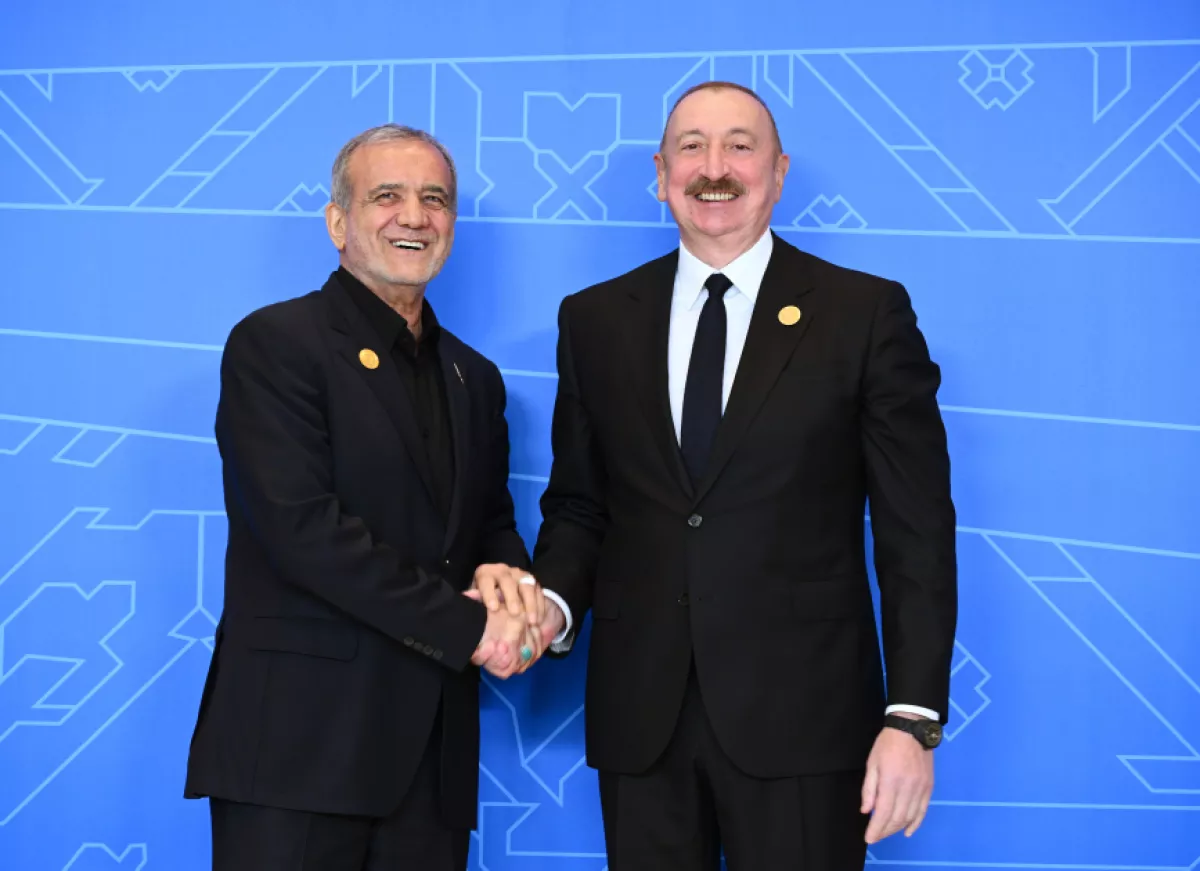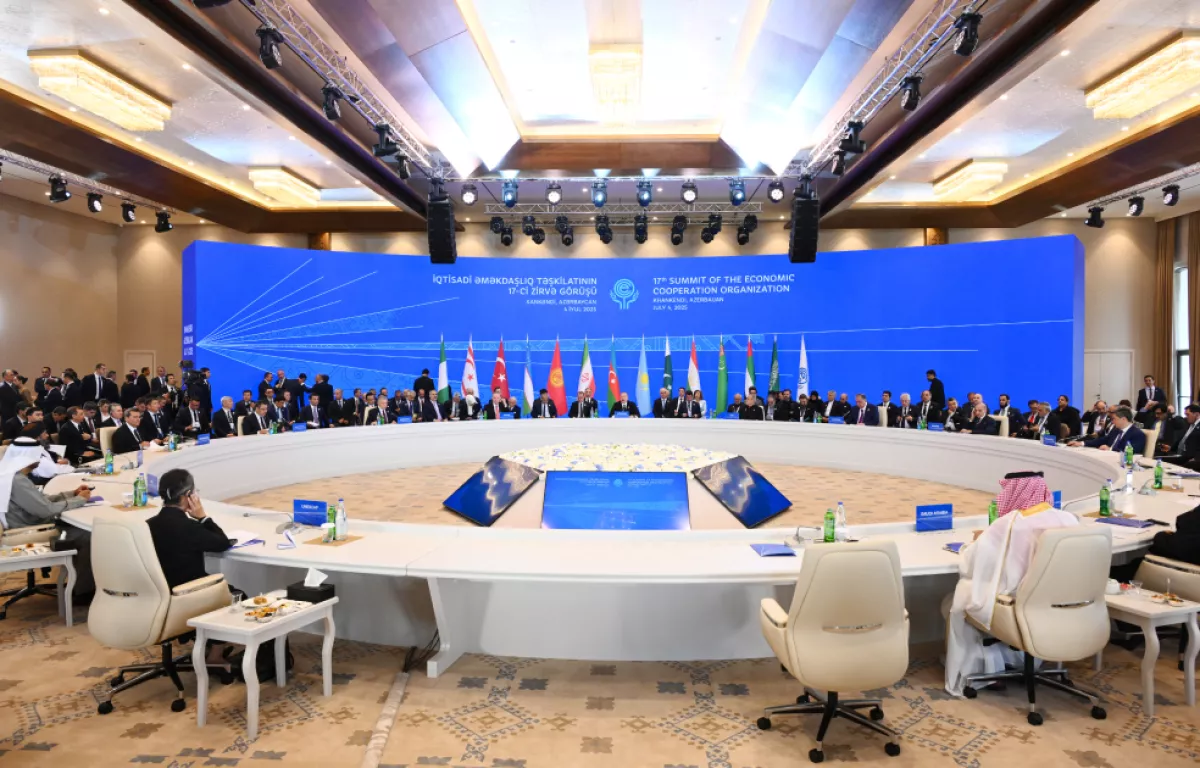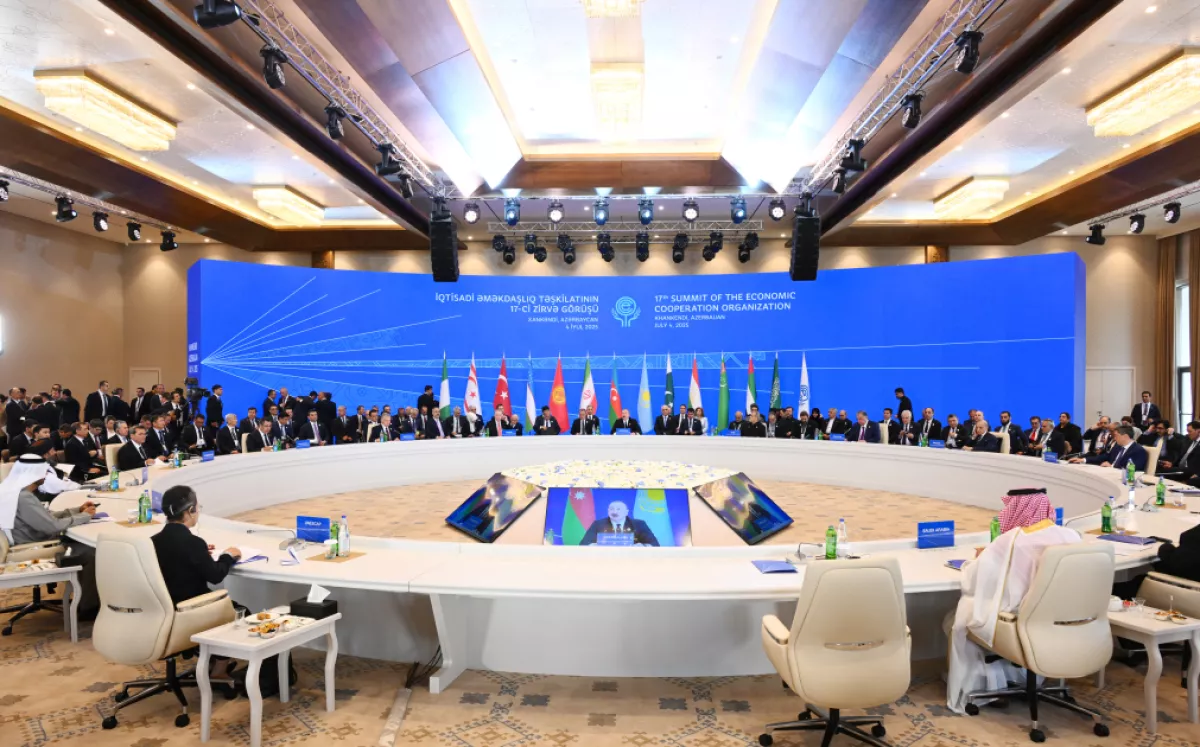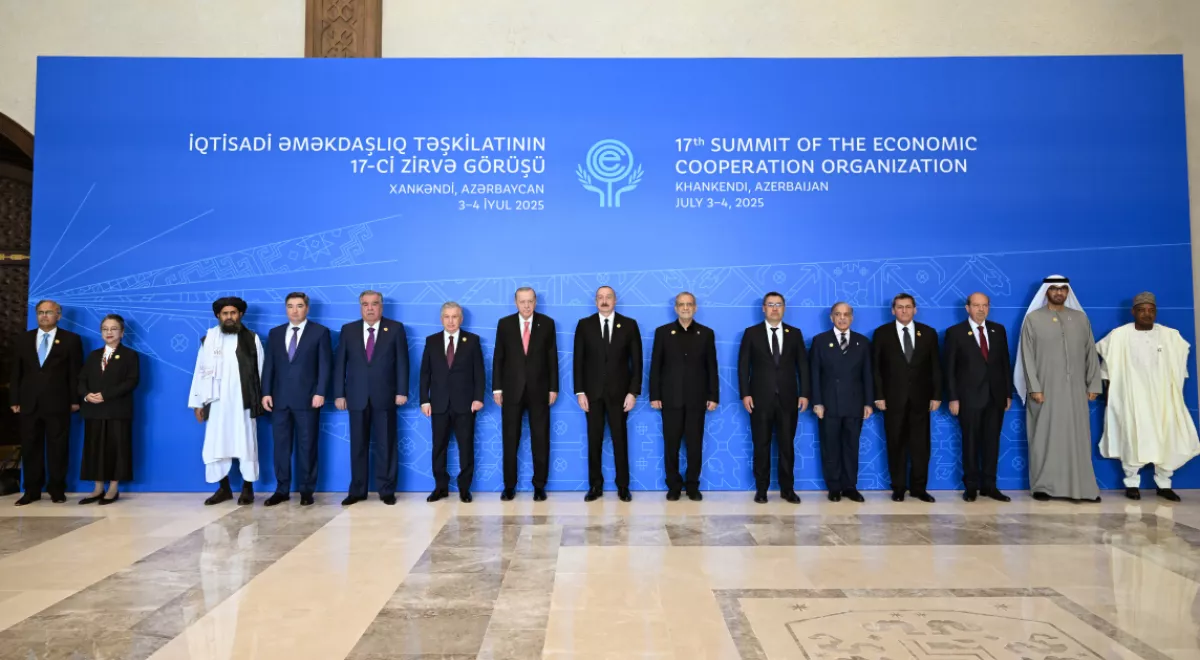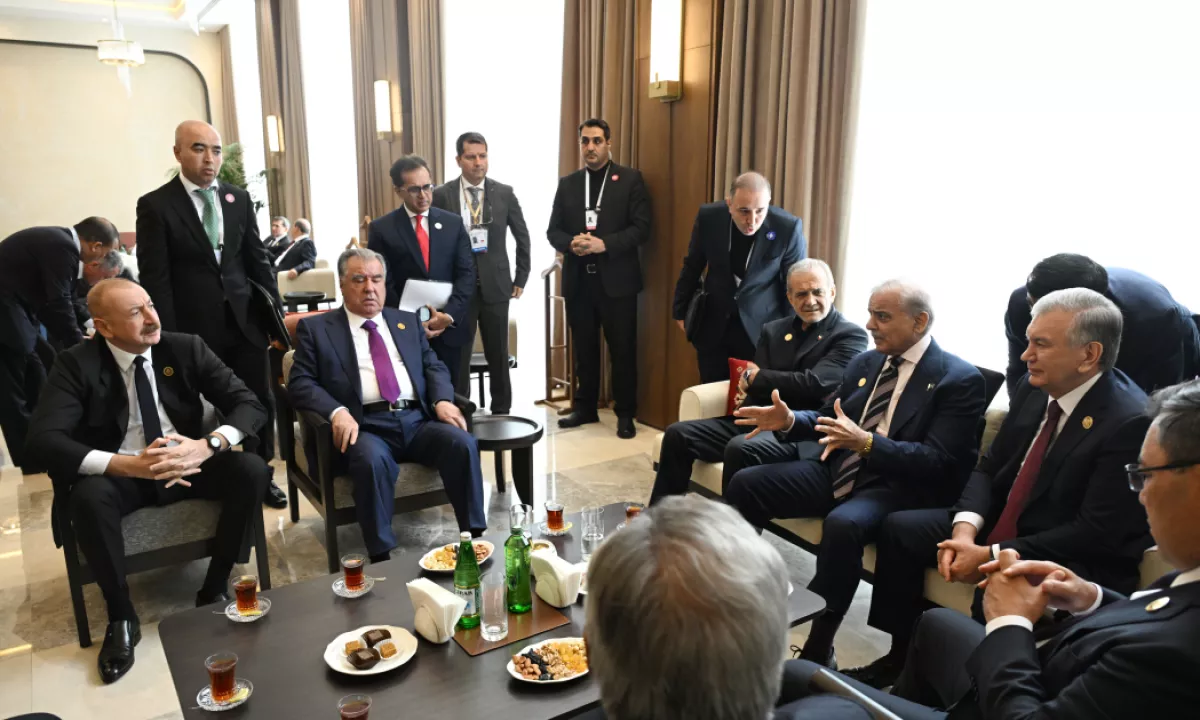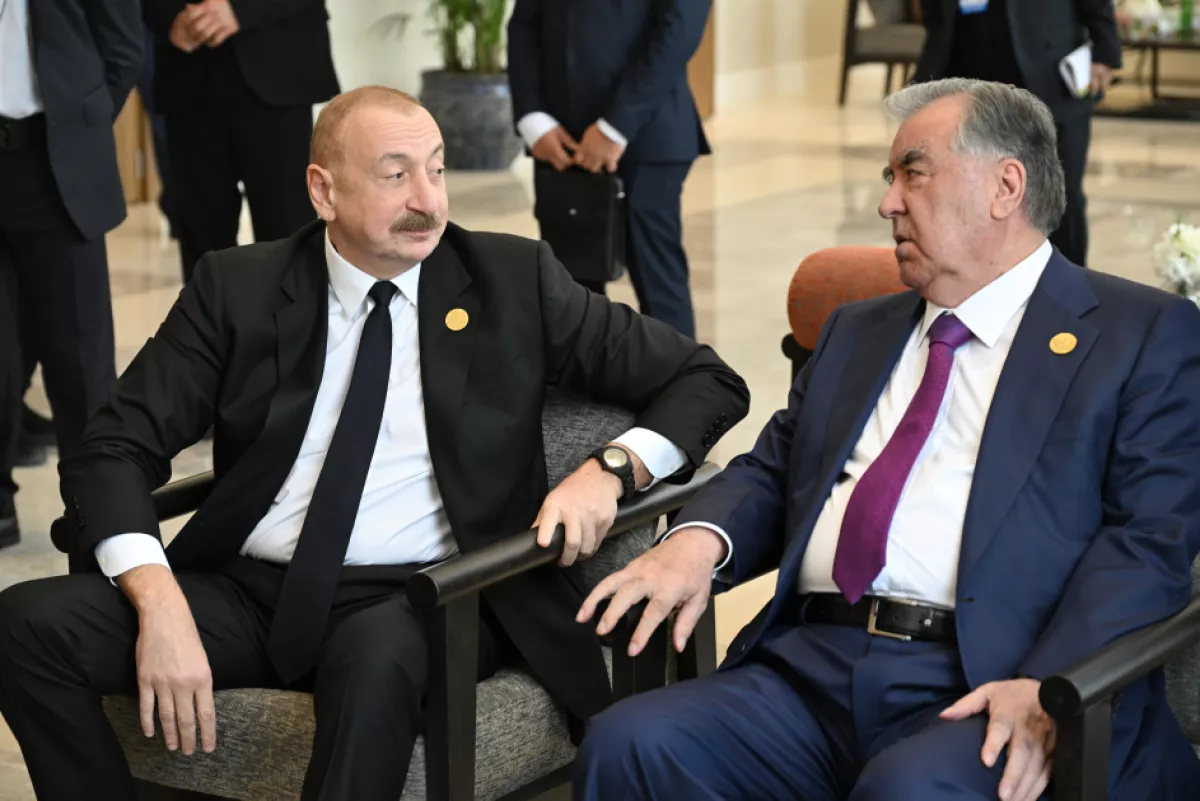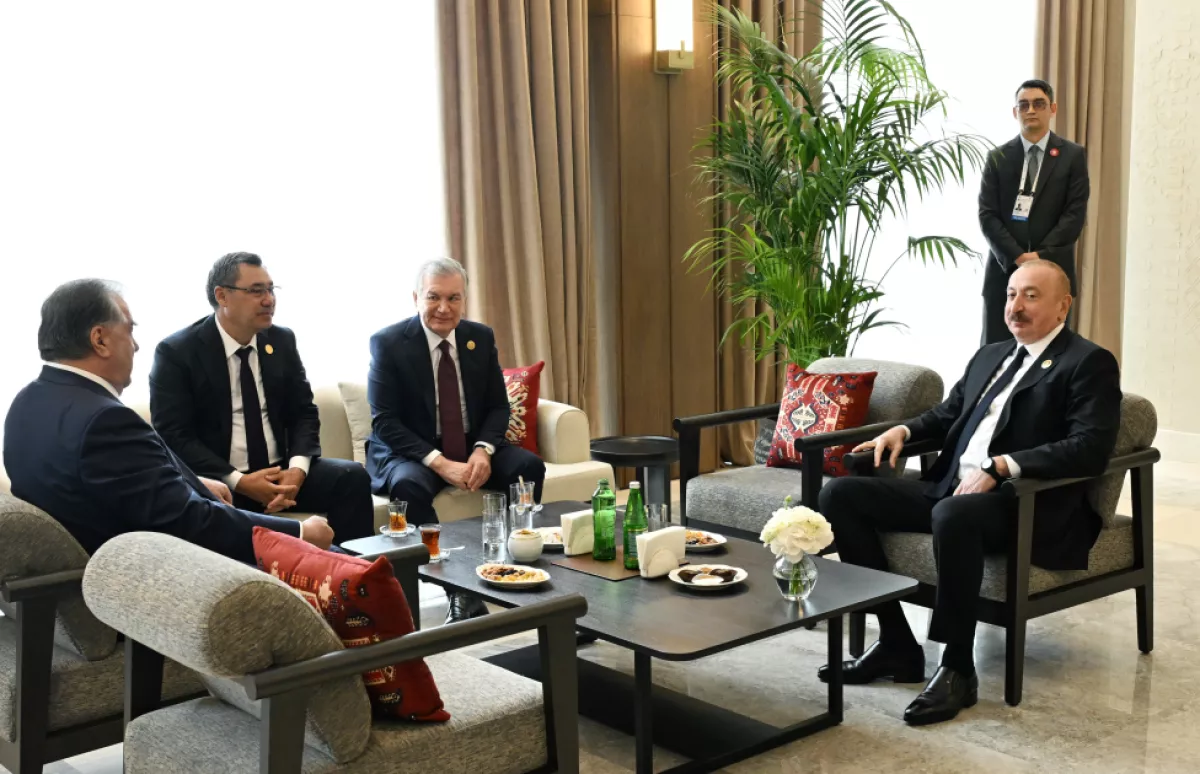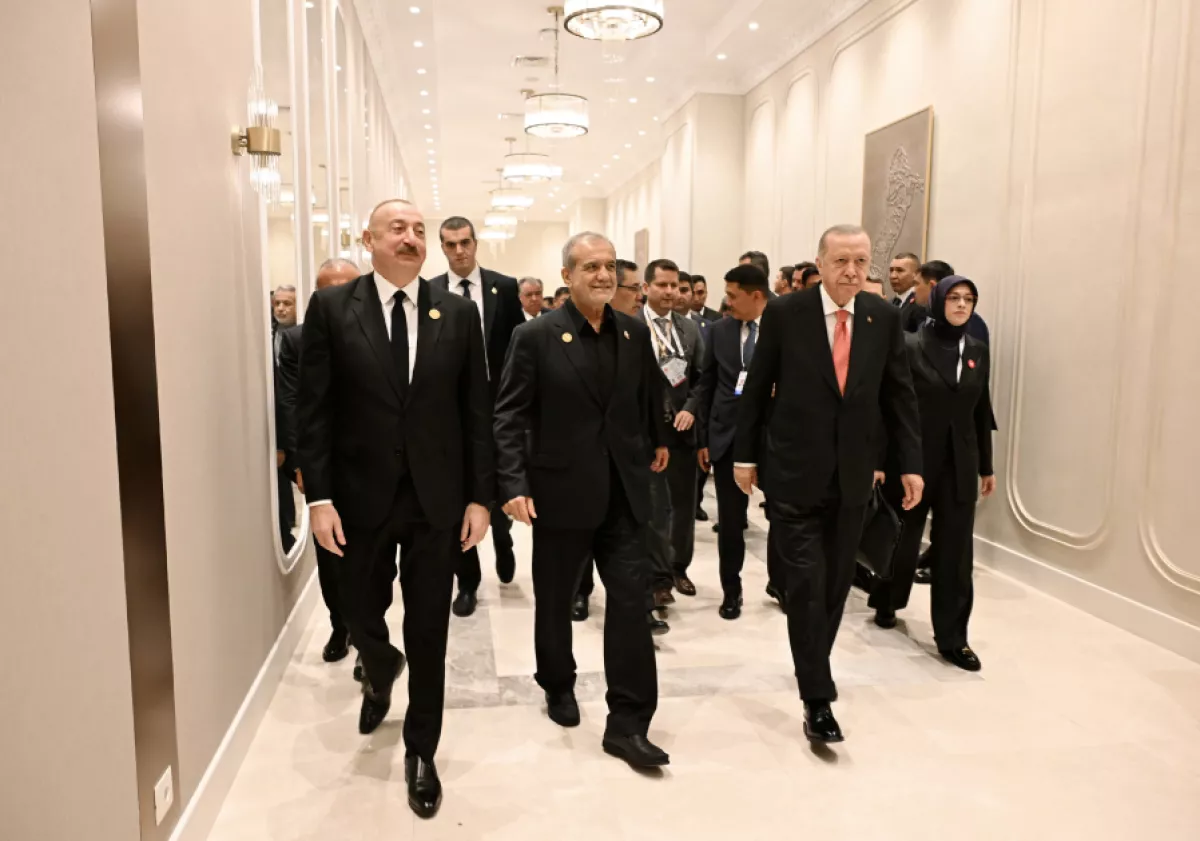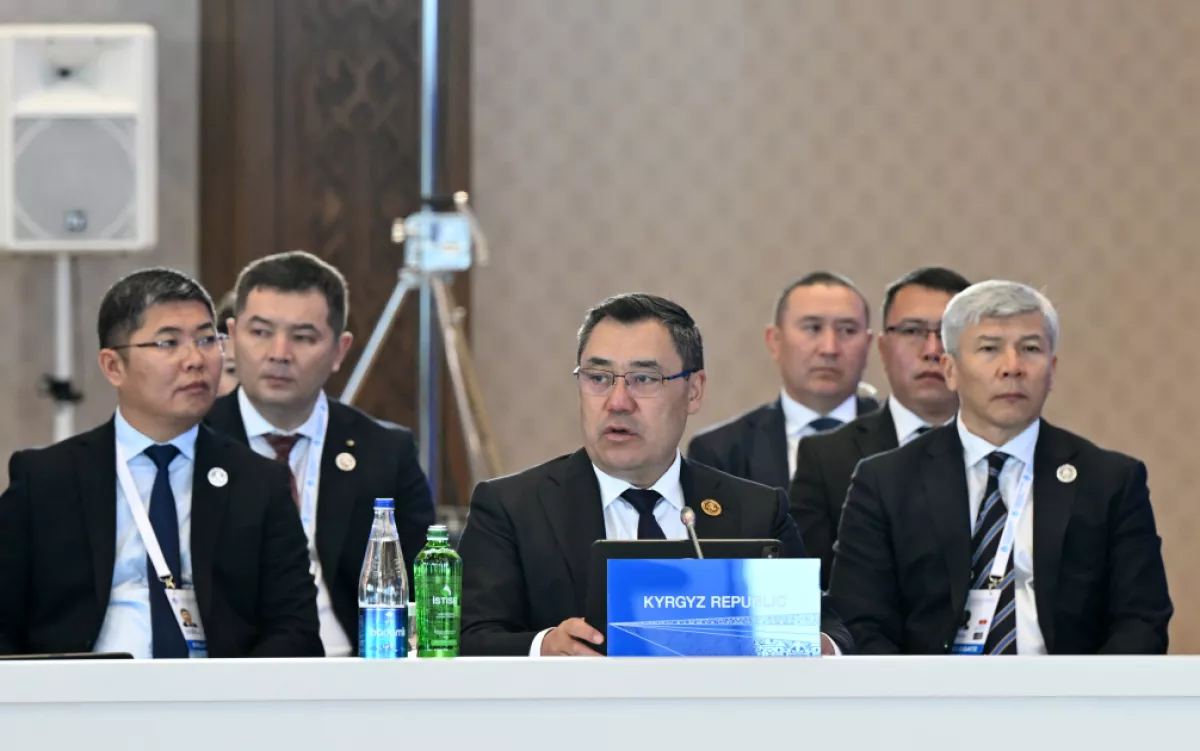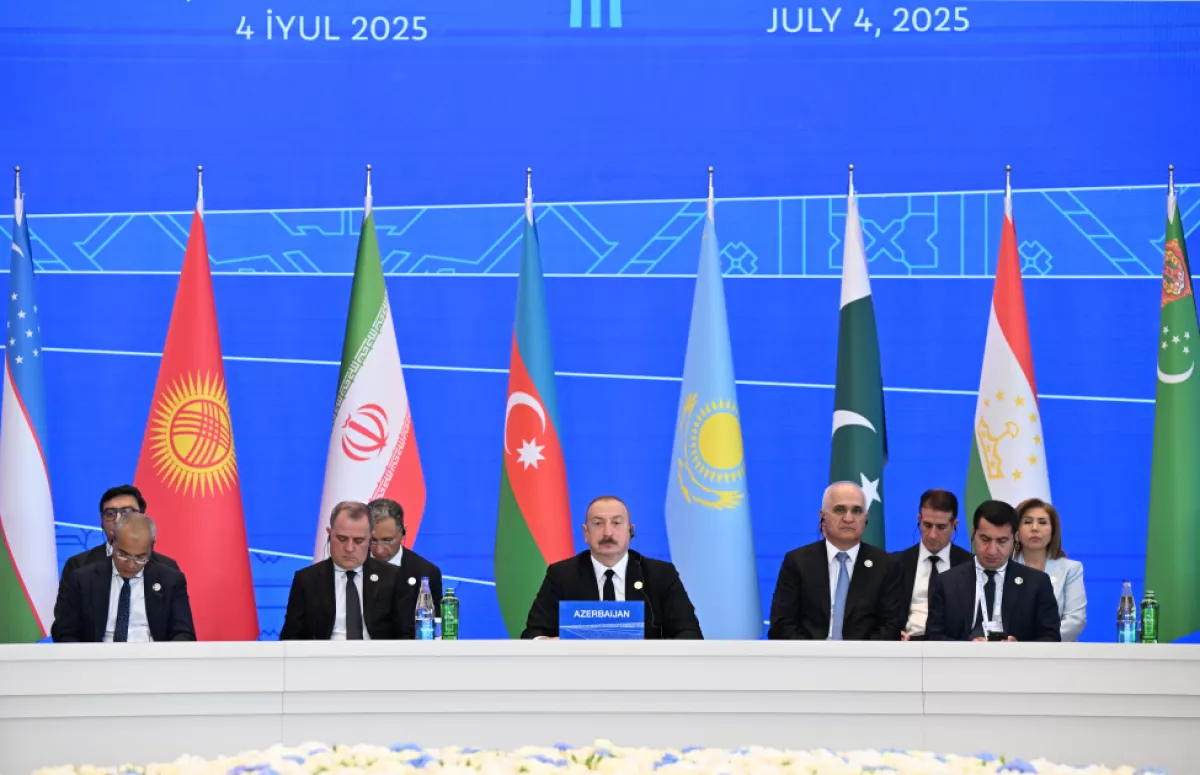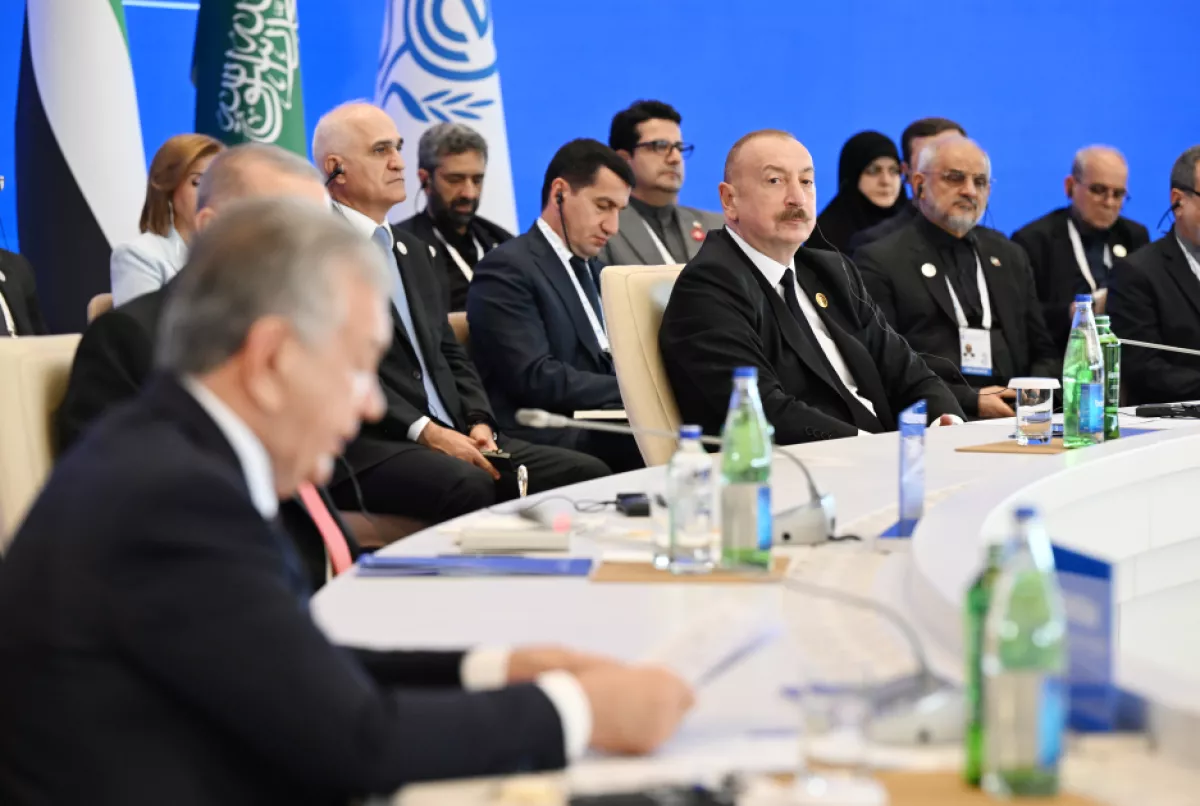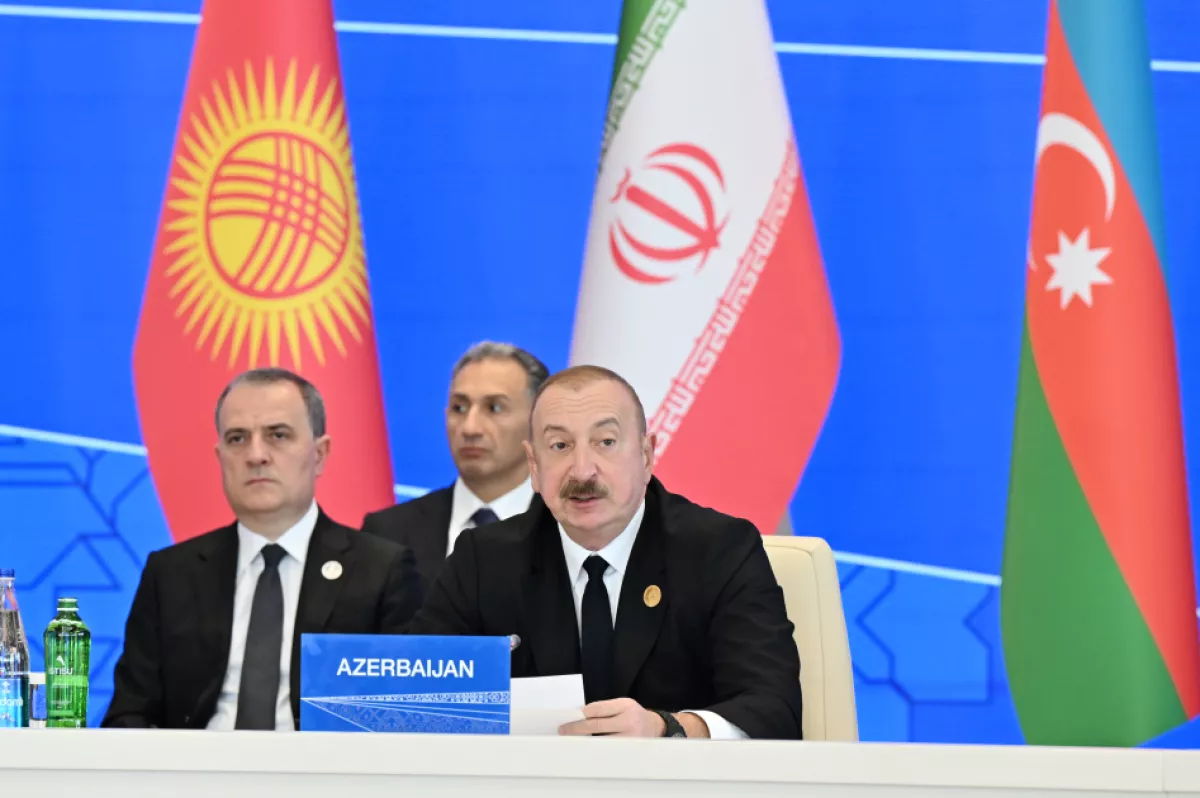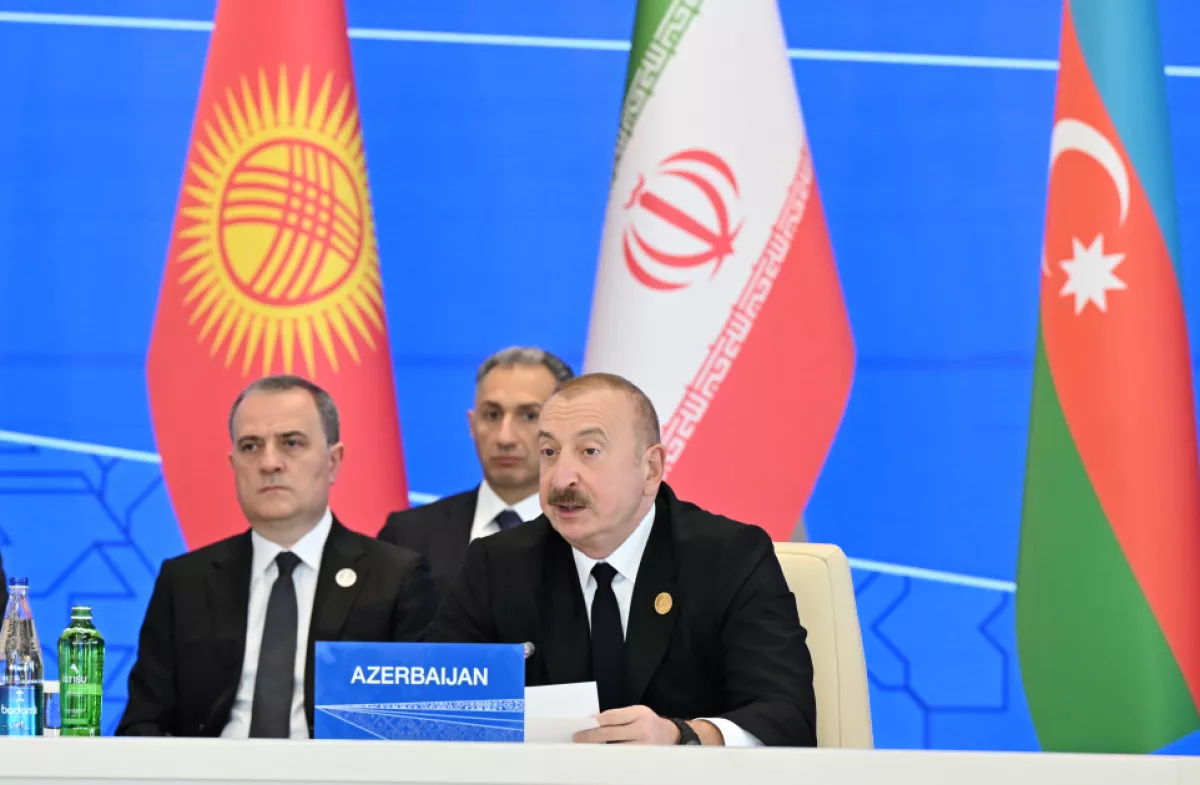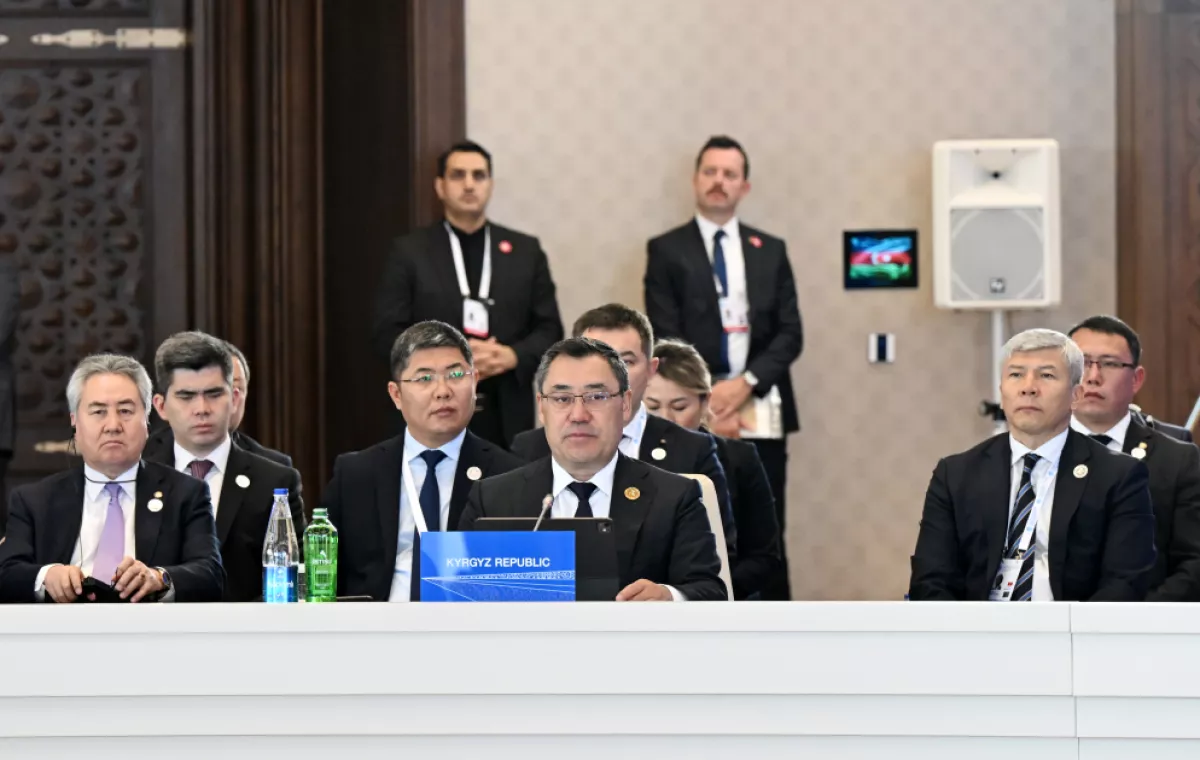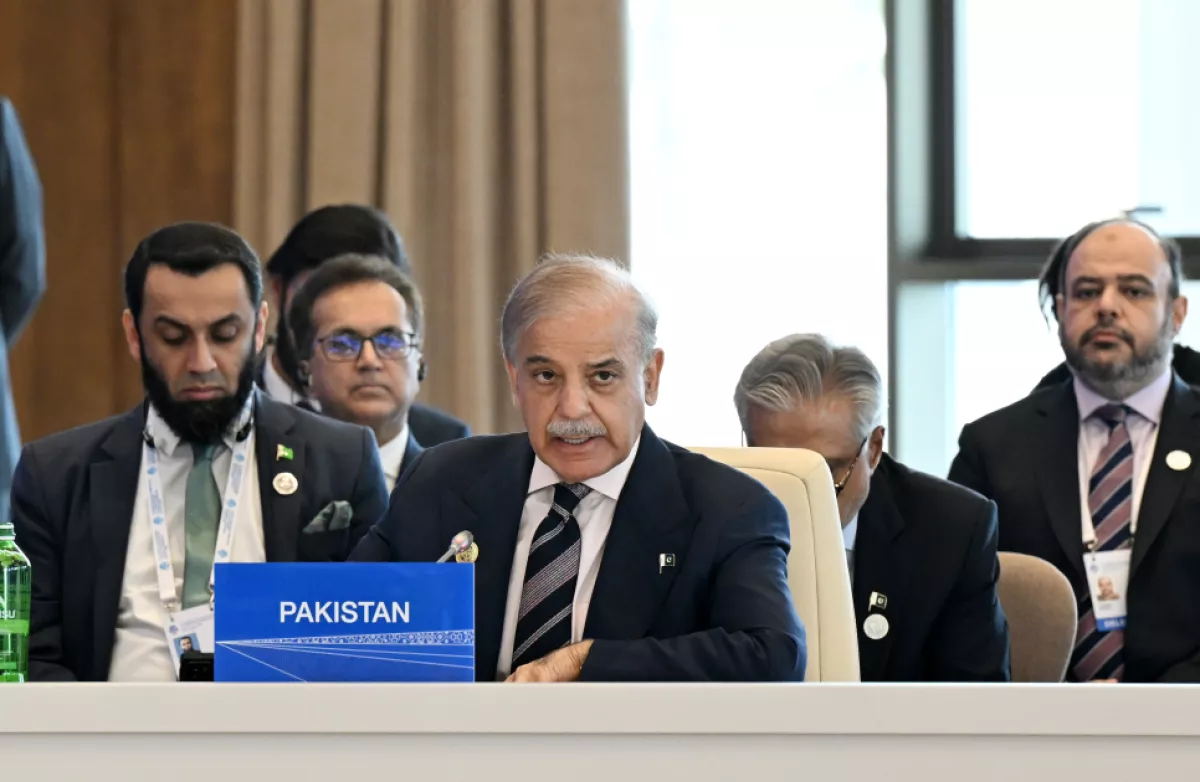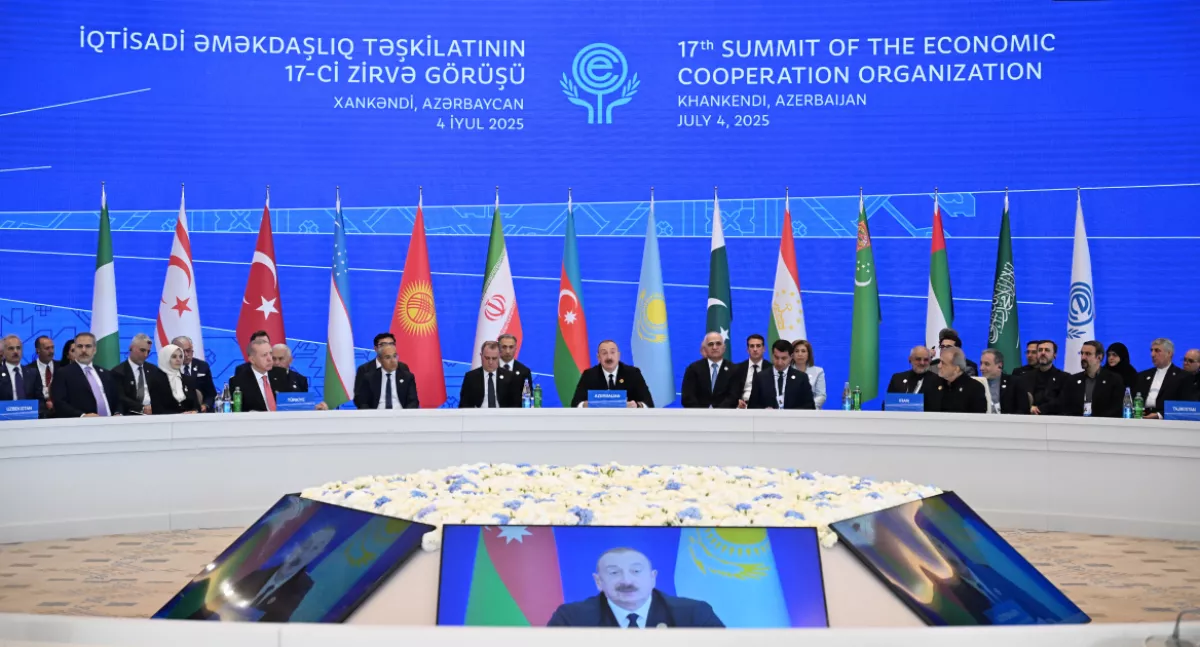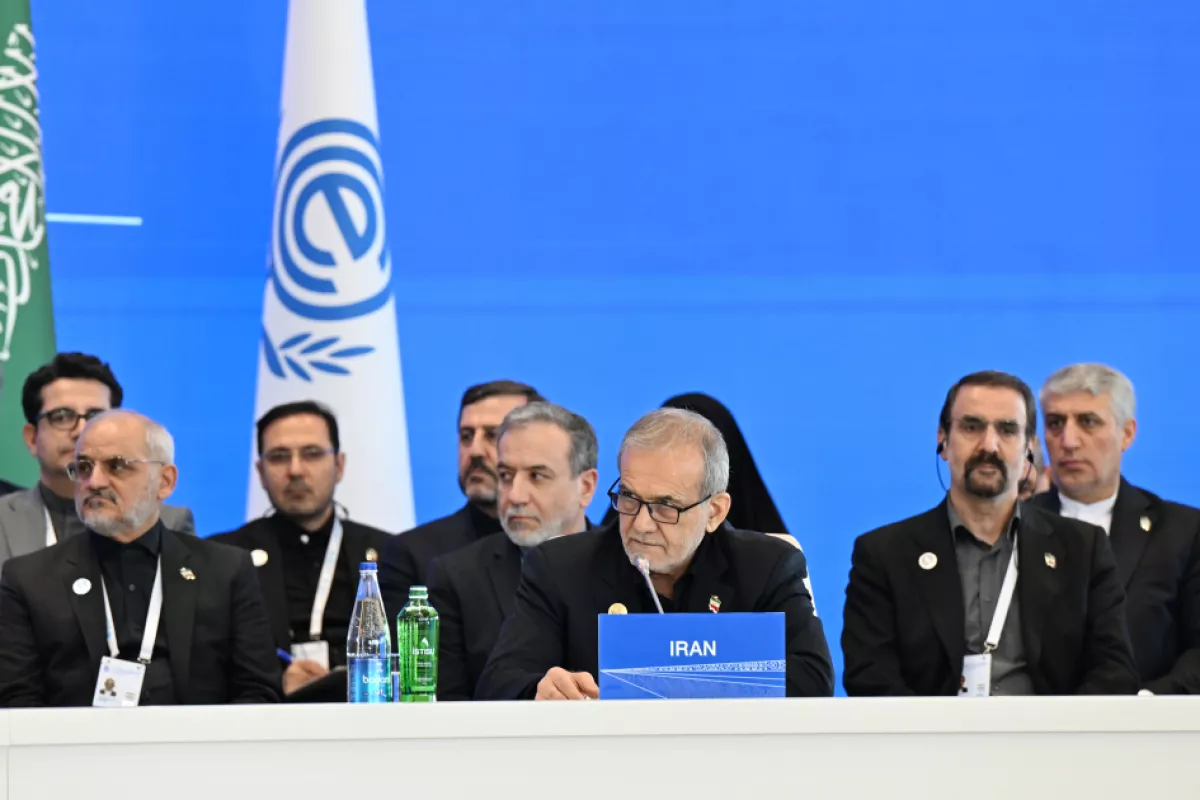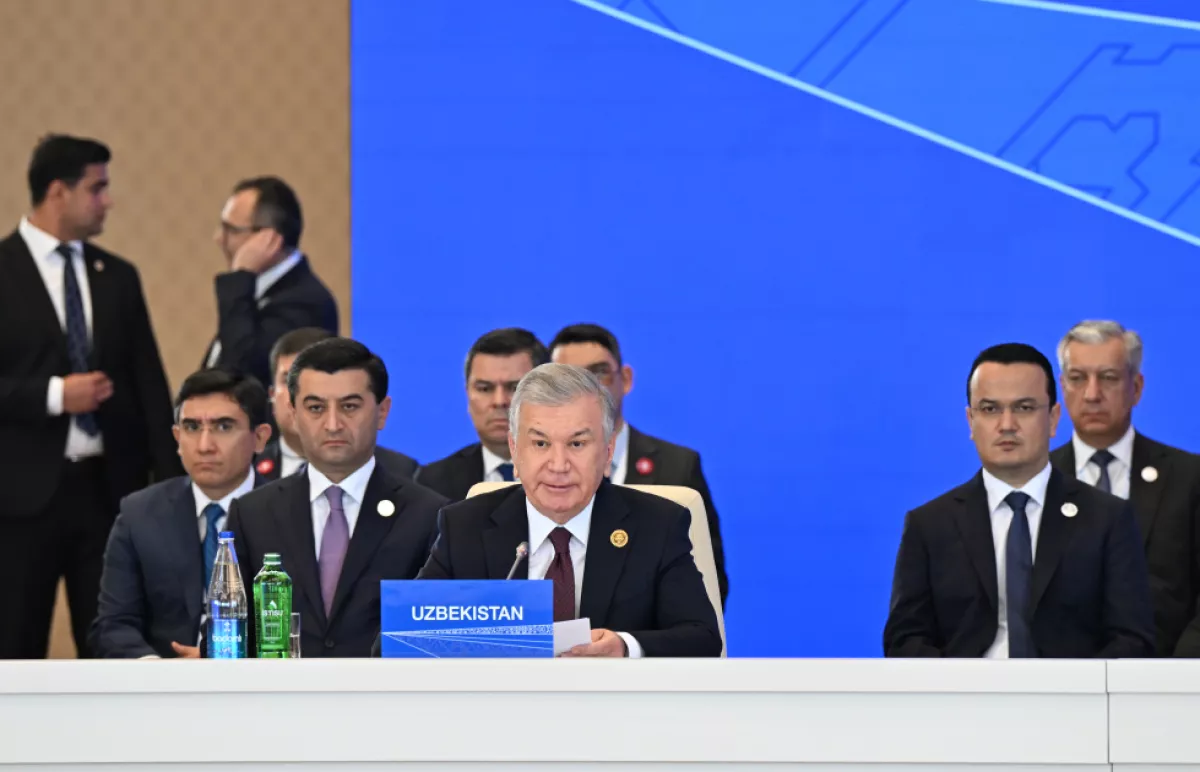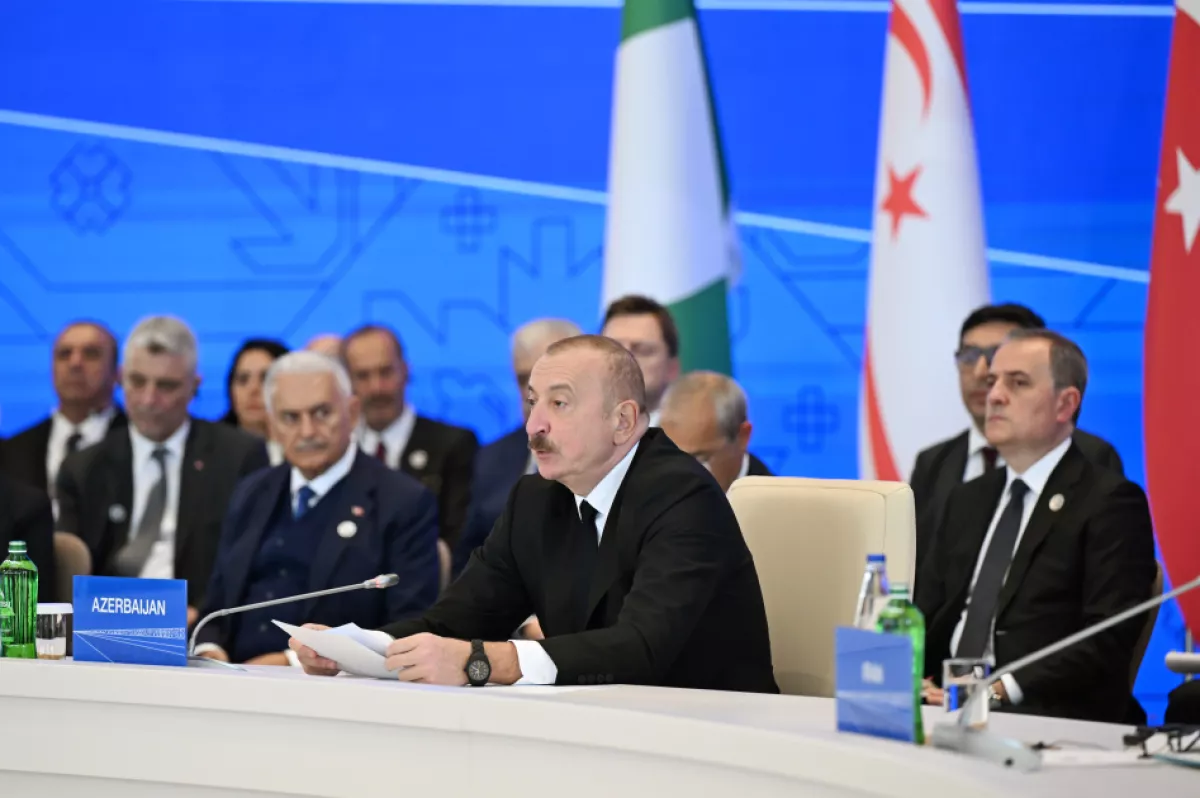Azerbaijan hosts ECO leaders in newly built Congress Centre in Khankendi PHOTO / VIDEO/ UPDATED
Azerbaijan welcomed heads of state, government leaders, and high-level delegations to the 17th Summit of the Economic Cooperation Organisation (ECO), held for the first time in the city of Khankendi. The high-profile gathering took place at a newly constructed Congress Centre, symbolising the country’s successful post-conflict reconstruction efforts in the Karabakh region and underscoring Azerbaijan’s growing role in regional economic and political cooperation.
President of the Republic of Azerbaijan Ilham Aliyev welcomed the heads of state and government, as well as the heads of delegations participating in the Summit, Caliber.Az reports via local media.
The event participants posed for a family photo.
President Ilham Aliyev addressed the Summit.
Speech by President Ilham Aliyev
- Distinguished Heads of State and Government,
Dear Summit participants,
Welcome to Khankendi - to the ancient Azerbaijani land of Karabakh, for the participation at the 17th Summit of the Economic Cooperation Organization (ECO).
I express my gratitude to Kazakhstan for the successful chairmanship of the ECO.
Azerbaijan is hosting the ECO Summit for the third time. The previous two summits of 2006 and 2012 were held in the capital city of Baku.
Organization of today’s Summit in Karabakh, in Khankendi, holds particular symbolism. Several significant international events have already been held in our lands liberated from Armenia’s occupation. I would like to mention the ECO Council of Ministers held in Shusha in 2023, the first informal Summit of the Organization of Turkic States held in 2024, and the Trilateral Summit of the leaders of Azerbaijan, Türkiye and Pakistan held in Lachin this May.
Today, the ECO Summit is taking place in Khankendi, at the newly built Congress Center.
At present, large-scale reconstruction and development efforts are underway throughout the entire liberated Karabakh and East Zangezur regions.
Armenia had held nearly 20 percent of Azerbaijan’s territory under occupation for almost 30 years, conducting ethnic cleansing and expelling over one million of our fellow Azerbaijanis from their native lands.
The state of Azerbaijan and its people have never come to terms with the occupation. On numerous occasions, we made it clear to Armenia and the states supporting it that if Armenia failed to withdraw voluntarily from our occupied territories, we would resort to military force to restore our territorial integrity. Unfortunately, Armenia and its patrons did not take our warnings seriously - and eventually came to regret it.
In the course of a 44-day Patriotic War of 2020, Azerbaijan had crushed Armenia on the battlefield, and liberated over 300 cities and villages. Armenia had to sign the capitulation act on 10 November 2020.
During the occupation, Armenia razed our cities and villages to the ground, along with our cultural and religious sites. Armenia had demolished 65 of the 67 mosques; the remaining two were severely damaged and used as barns for cows and pigs. This was a clear act of disrespect and insult toward the Islamic faith and Muslims around the world.
Cemeteries, too, were vandalized - destroyed, and tombstones were looted and taken to Armenia.
A commission composed of state agencies, with the involvement of foreign experts and drawing on international experience, estimated that the damage caused to Azerbaijan as a result of the occupation amounted to nearly $150 billion.
Armenia planted more than one million mines on our territory. Since the Patriotic War, nearly 400 of our citizens have been killed or seriously injured by mine explosions.
Today, in the lands devastated by Armenia, new cities and villages are being built. The “Great Return” program is underway. So far, we have facilitated the return of former internally displaced persons to 16 cities and villages. More than 50,000 people now live, work, and study in the liberated territories.
Ensuring the rights of Azerbaijanis deported from Armenia is also a matter of significant importance. We highly appreciate a resolution affirming the right of return of Azerbaijanis forcibly displaced from Armenia, adopted by the unanimous decision of all 57 members at the Council of Foreign Ministers of the Organization of Islamic Cooperation in Istanbul, last month.
The Istanbul Declaration, adopted alongside the resolution during the Council of Foreign Ministers session, reaffirms the right of Azerbaijanis displaced from present-day Armenia to return, and condemns Armenia's refusal to engage in dialogue with the Western Azerbaijan Community.
The efforts to ensure the peaceful return of the Western Azerbaijanis to their ancestral lands in Armenia will continue.
Ladies and Gentlemen,
Azerbaijan has always been actively involved in the ECO’s activity. Our relations with the ECO member states have been developing successfully.
Last year, COP29 conference was held for the first time ever within the ECO region. This conference brought together participants from 197 countries, welcomed 70 heads of state and government, and recorded a total of 77,000 registrations.
Conference’s primary achievements included increasing the financial commitment from $100 billion to $300 billion, to support the developing nations, operationalizing Loss and Damage Fund, and reaching consensus on carbon markets.
This year, for the first time, ECO Week is being held at Azerbaijan’s initiative. The ECO Business Forum in Shusha, the Youth Forum in Aghdam, and the Women’s Forum in Lachin have taken place. The representatives who took part in the Forums will report to the Summit on their outcomes today.
Work is underway to ensure the launch of ECO’s Research Centre and Clean Energy Centre to be hosted by Azerbaijan.
I am grateful for the declaration of the city of Shusha as the ECO Tourism Capital for 2026.
The issues to be discussed today are of particular importance for deepening economic cooperation. Azerbaijan enjoys a very favorable investment climate. Over the past 20 years, approximately $350 billion has been invested in Azerbaijan’s economy, with foreign investments accounting for half of that amount.
Today, Azerbaijan ensures the energy security of several countries and exports natural gas to 12 countries through various pipelines. Based on this indicator, we hold top positions worldwide.
East-West and North-South transportation corridors run across Azerbaijan and most ECO member states use these corridors.
Dear friends,
I am confident that our today’s discussions will be fruitful and contribute positively to the further development of relations between our countries.
Thank you.
x x x
Then, the Chairman of the 16th Summit of the Economic Cooperation Organization, President of the Republic of Uzbekistan Shavkat Mirziyoyev, delivered a speech.
12:03
The 17th Summit of the Economic Cooperation Organisation (ECO) is currently underway in Khankendi, bringing together leaders and representatives from member states to discuss enhanced regional cooperation.
The summit is being attended by the President of Azerbaijan, Ilham Aliyev, Caliber.Az reports.
The event is also attended by the heads of state of Tajikistan — Emomali Rahmon, Türkiye — Recep Tayyip Erdoğan, Iran — Masoud Pezeshkian, Uzbekistan — Shavkat Mirziyoyev, Pakistan — Shehbaz Sharif, and the leader of Northern Cyprus — Ersin Tatar.
The previous 16th ECO Summit was held on November 9, 2023, in the capital of Uzbekistan — Tashkent.
The Economic Cooperation Organisation (ECO) was established in 1985 by Iran, Pakistan, and Turkey as the successor to the Regional Cooperation for Development Organisation (RCD), which had existed since 1964. After the collapse of the USSR, Azerbaijan, Kazakhstan, Uzbekistan, Turkmenistan, Kyrgyzstan, and Tajikistan, as well as Afghanistan joined it.
The main goals at the founding of ECO were declared as the development of trade among member countries, creation of sustainable transport and logistics infrastructure, deepening energy cooperation, promotion of agriculture, tourism, healthcare, education, and science, development of the private sector and small and medium-sized enterprises, and increasing the region’s role in the global economy.
Today, more than 500 million people live in the ECO zone, and the combined GDP of the member countries exceeds $2.5 trillion.
As a member of the Economic Cooperation Organisation (ECO), Azerbaijan has repeatedly demonstrated its commitment to the goals and principles of the organisation. Multilateral cooperation initiatives in such areas as energy, transport, trade, agriculture, and the green economy have further strengthened Azerbaijan’s position both regionally and on the international stage. In this context, Azerbaijan, acting in line with ECO’s strategic objectives, contributes to ensuring stability and development in the region.
The country has successfully hosted the 9th and 12th ECO Summits, held in Baku in May 2006 and October 2012, respectively. The decisions adopted during these events laid the foundation for advancing cooperation within the organisation to a qualitatively new level. At Azerbaijan’s initiative, important documents were adopted concerning energy security, strengthening transport connectivity, environmental issues, and sustainable development. This once again confirmed Azerbaijan’s status as an innovative and leading country within the ECO framework.
Today, the 17th Summit of the Economic Cooperation Organisation is taking place in Khankendi, Azerbaijan. This event serves as a confirmation of the growing role and activity of the country within the organisation. Hosting such an important event in Azerbaijan demonstrates the country’s proactive stance in the ECO and the high recognition of its contribution to the development of regional cooperation.
This event will not only strengthen Azerbaijan’s active participation in regional integration processes but will also make a significant contribution to enhancing the country’s diplomatic and economic standing on the international stage. At the same time, it will create favourable opportunities for implementing new formats and cooperation projects within the ECO framework, proposed by Azerbaijan.




